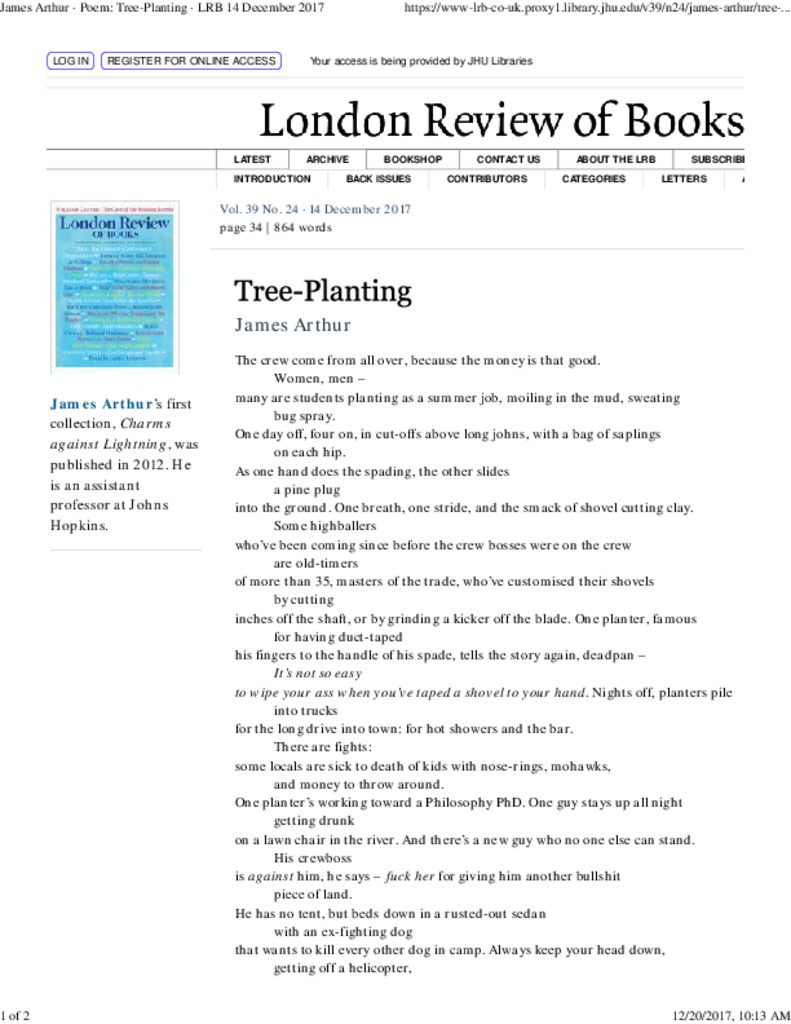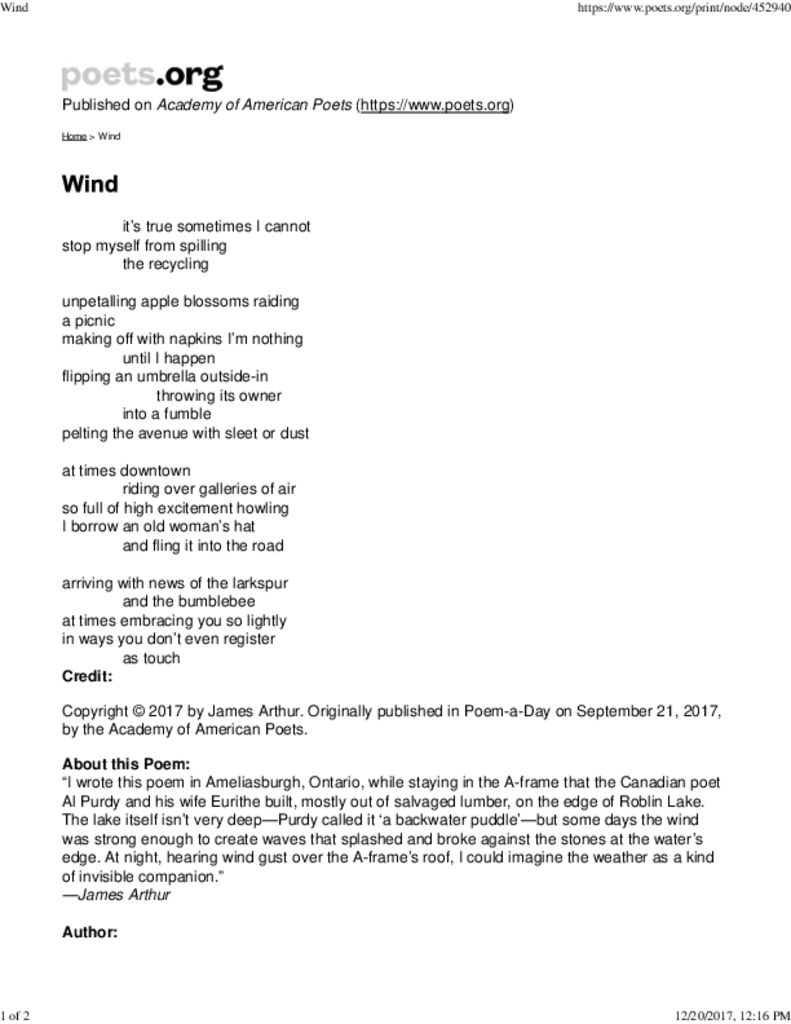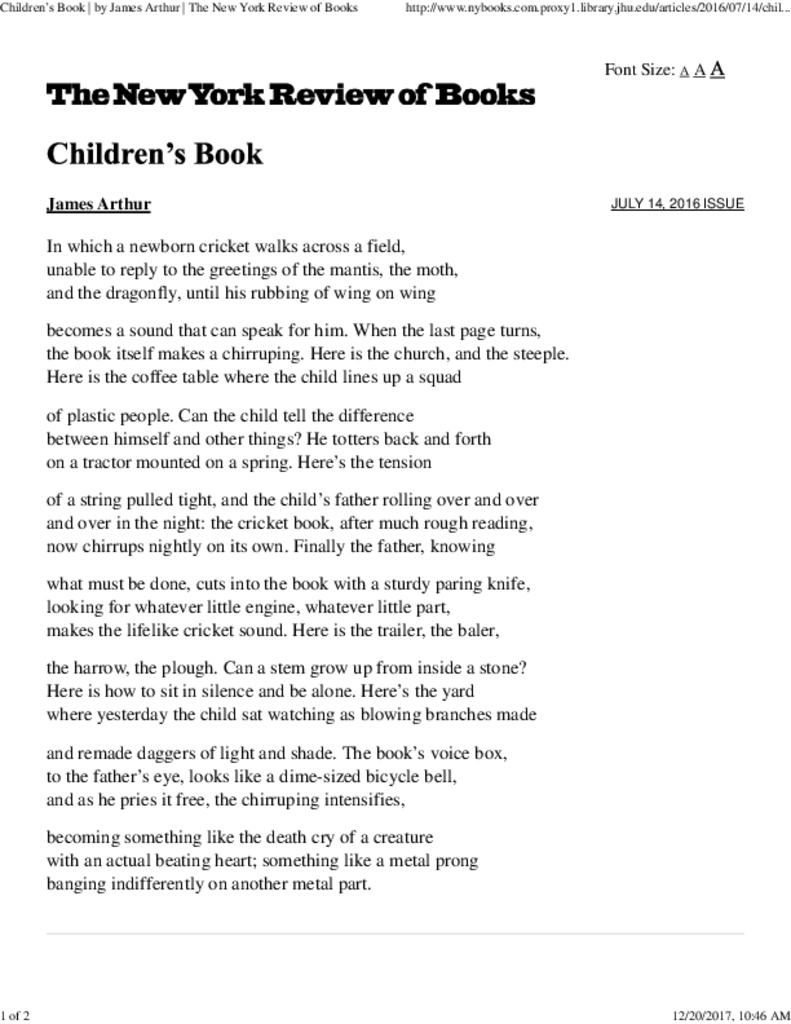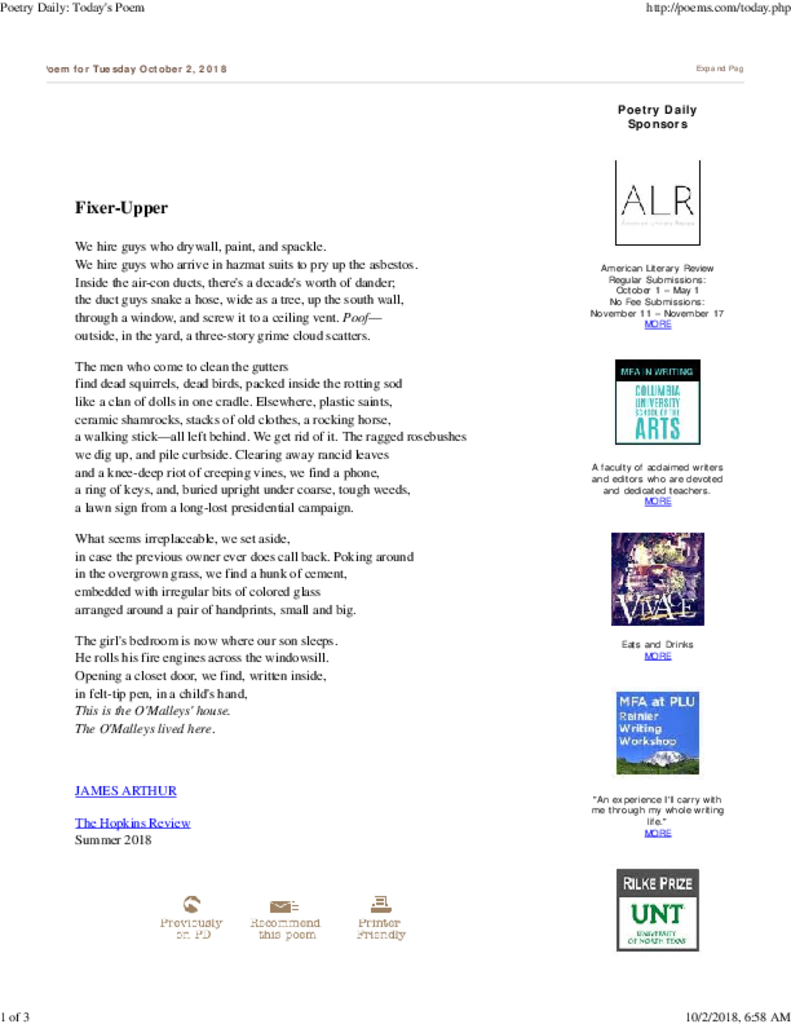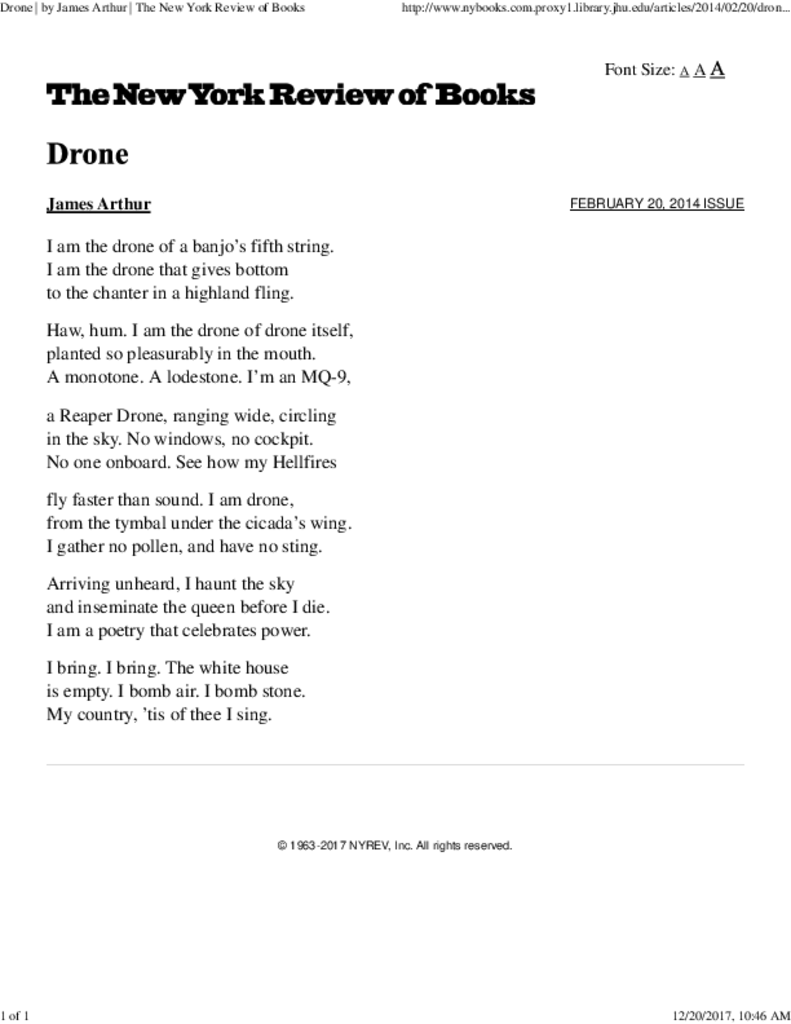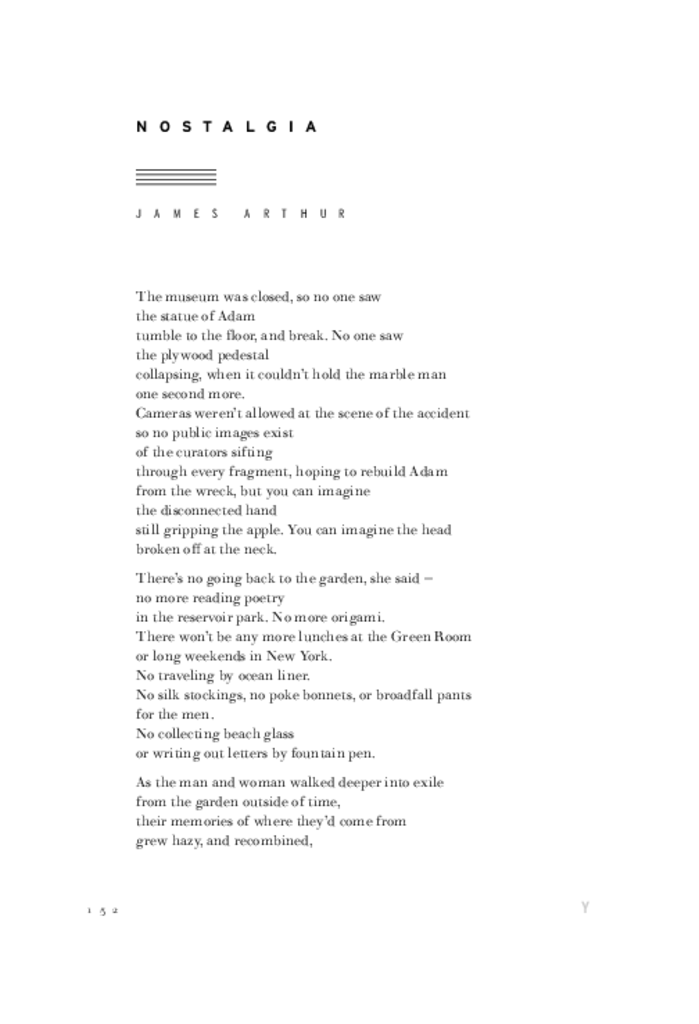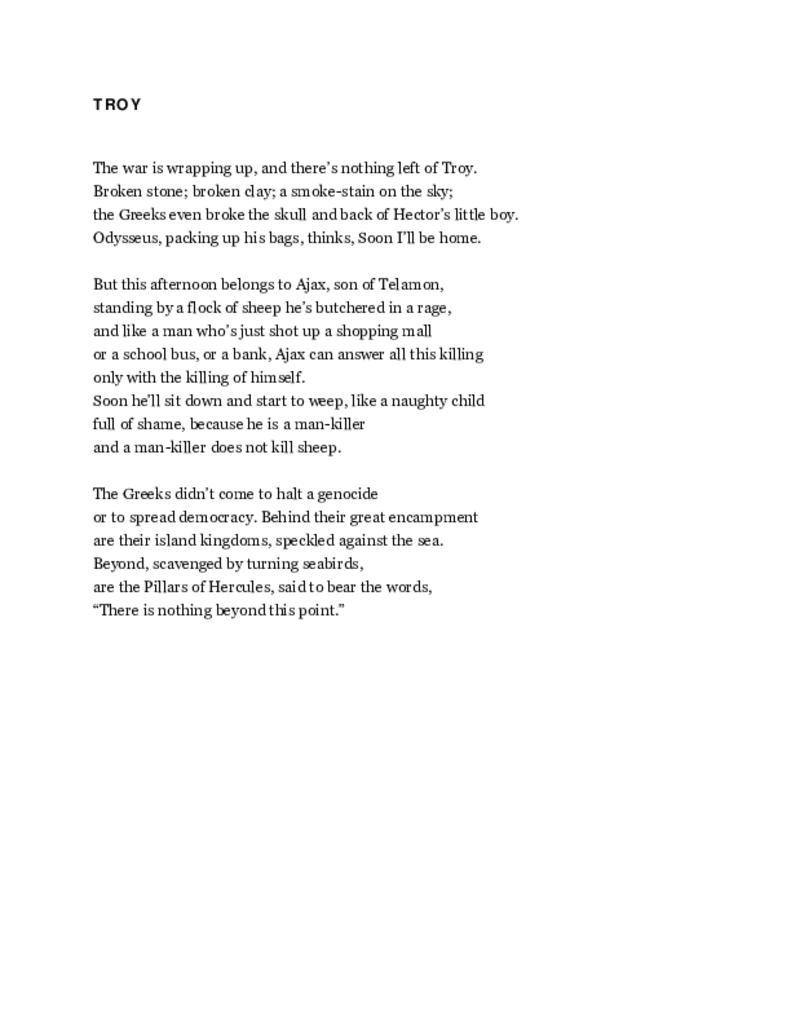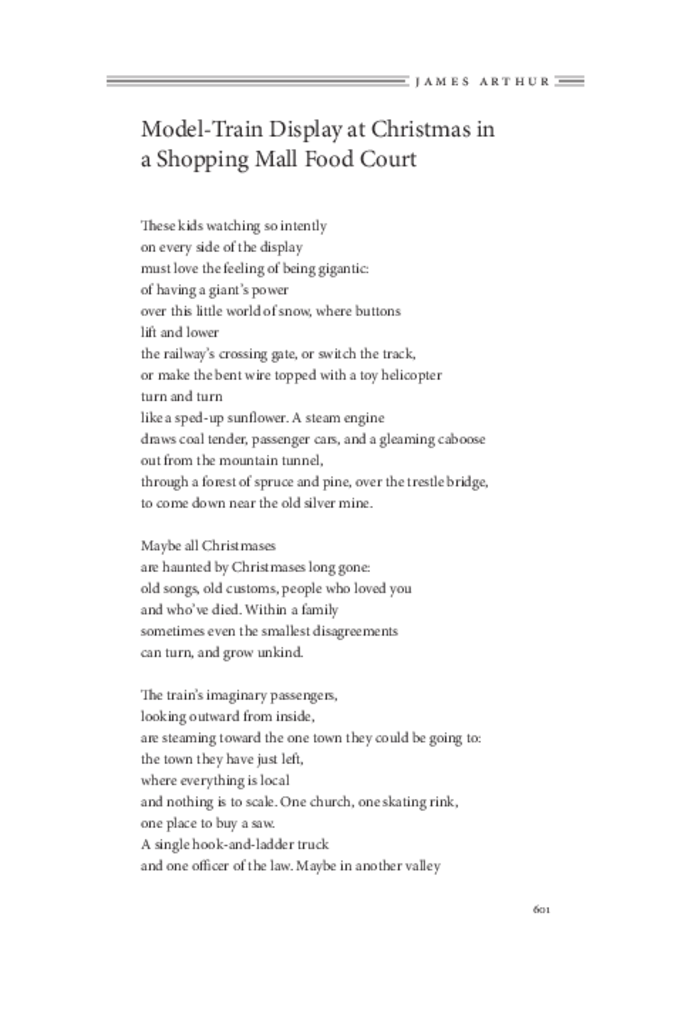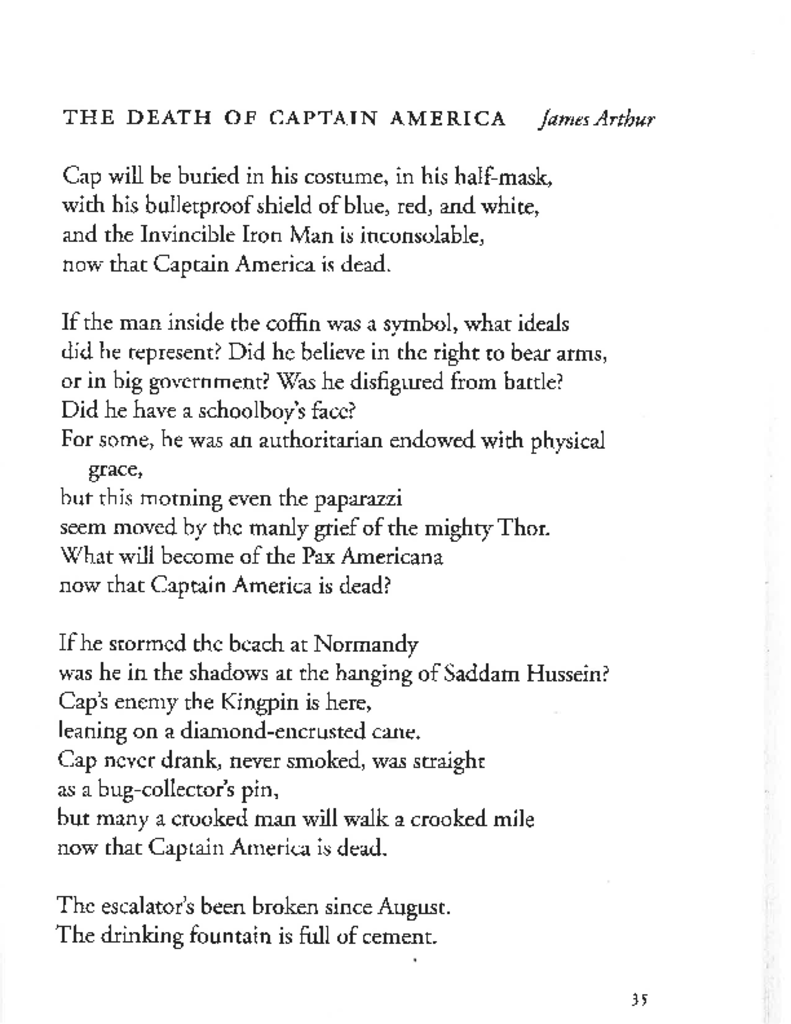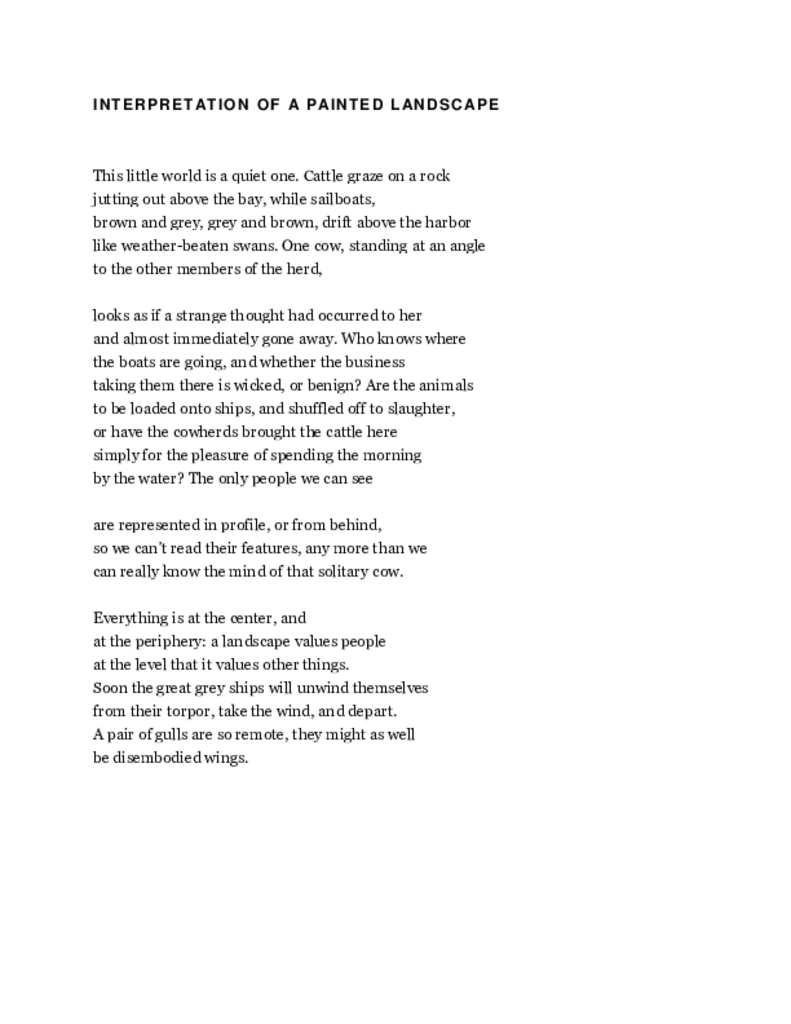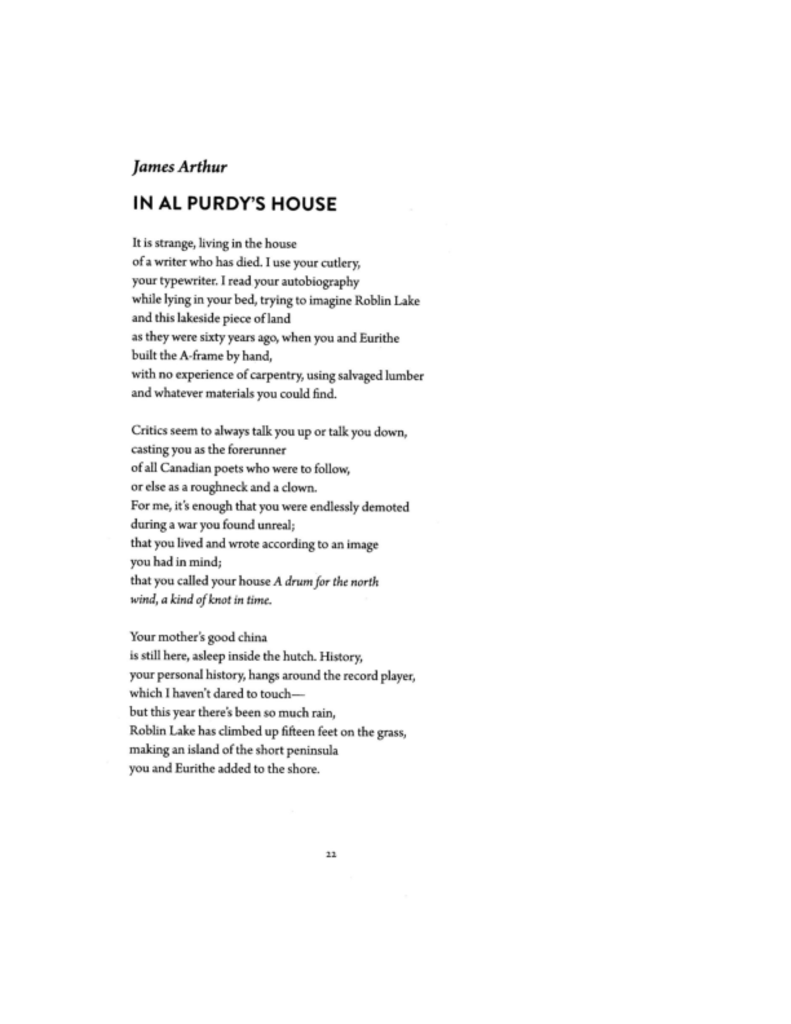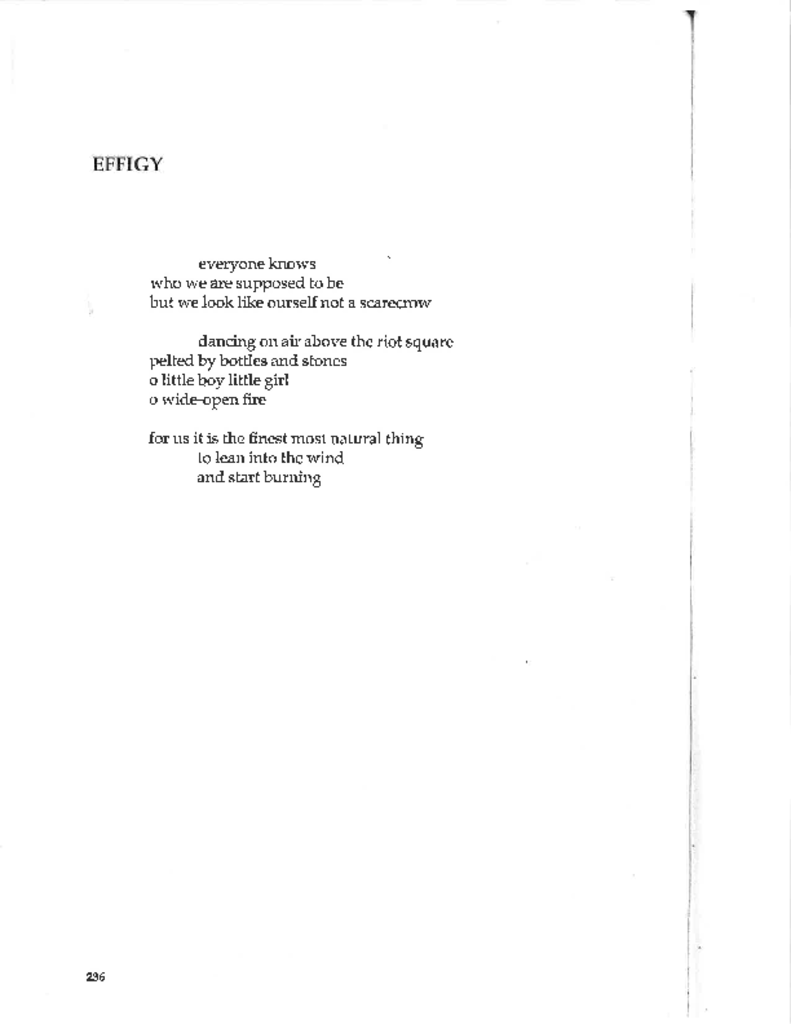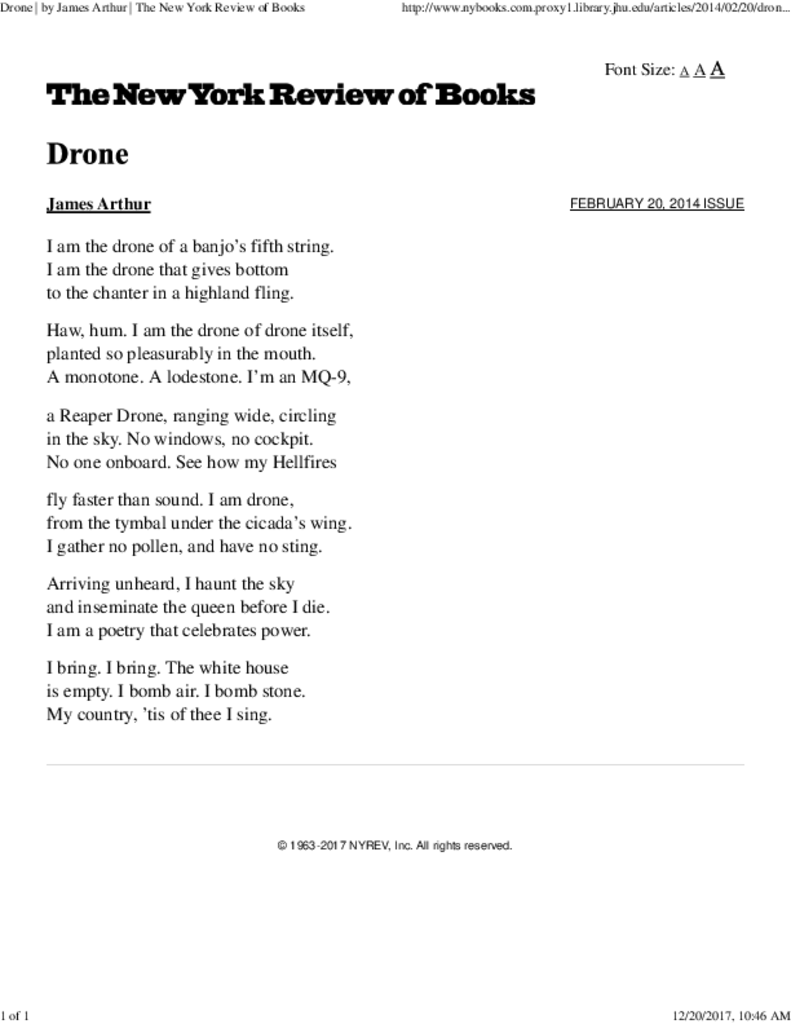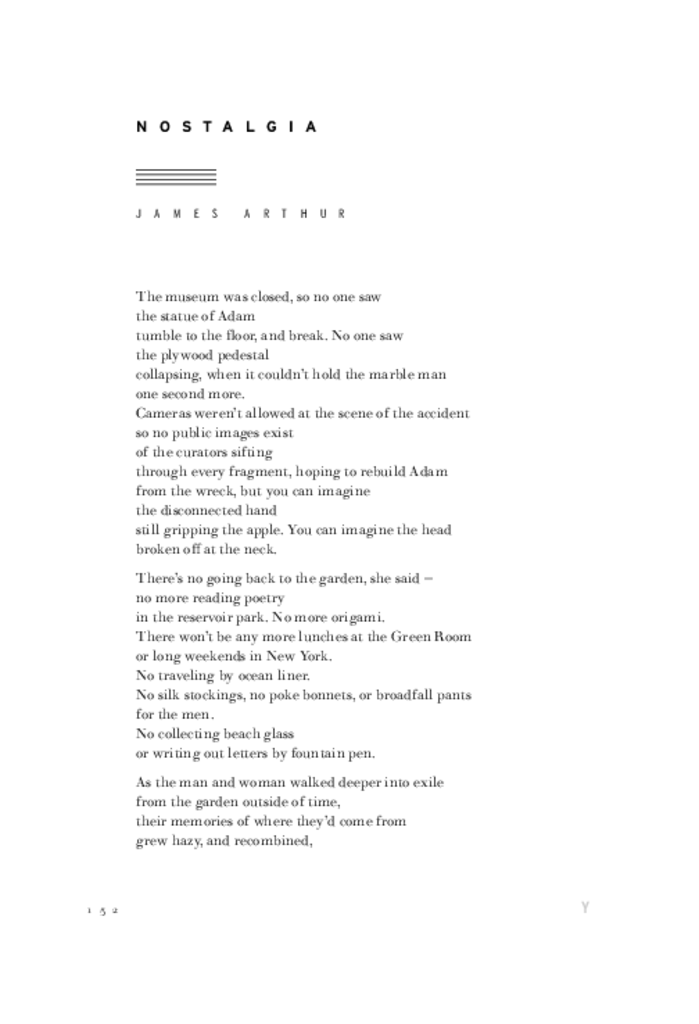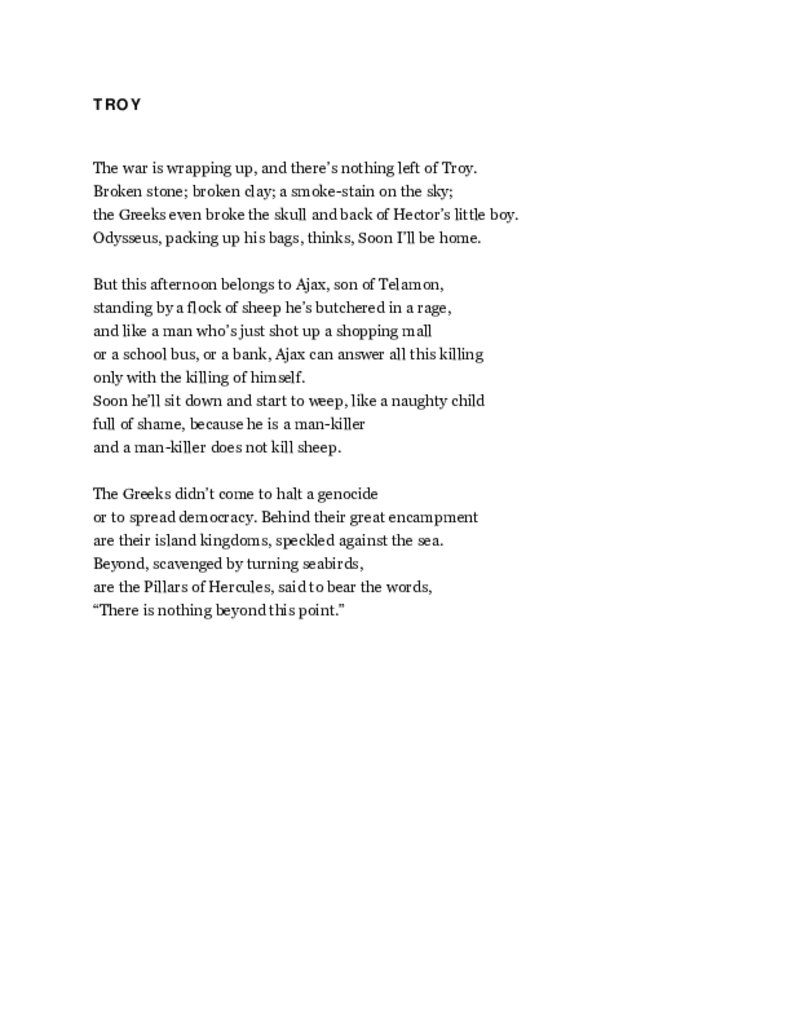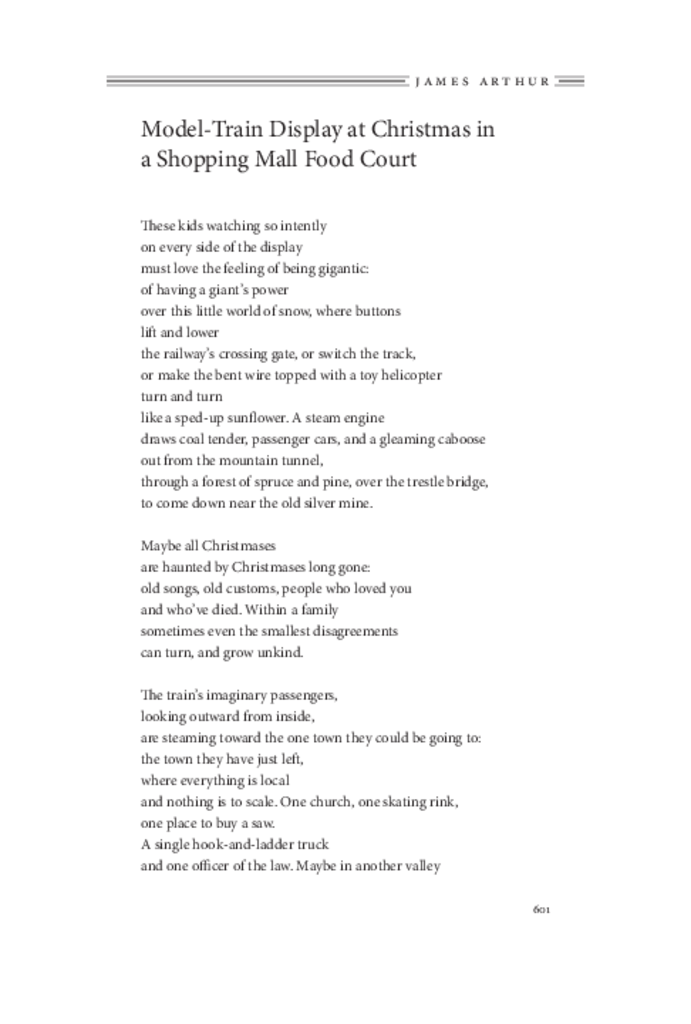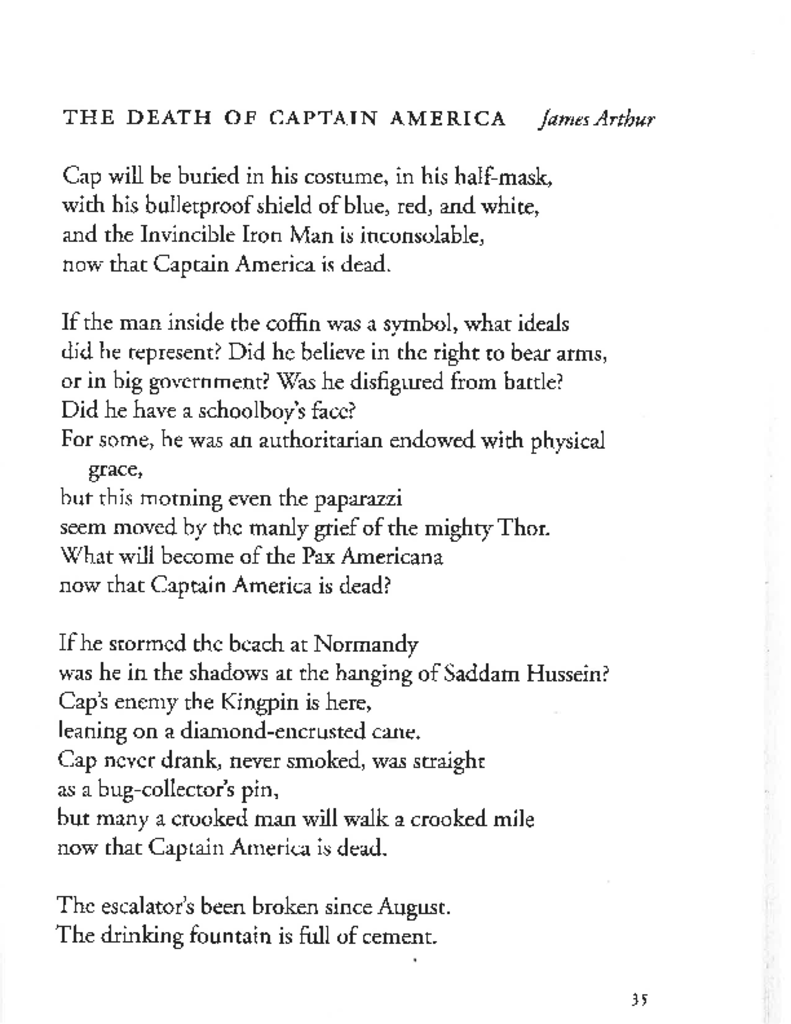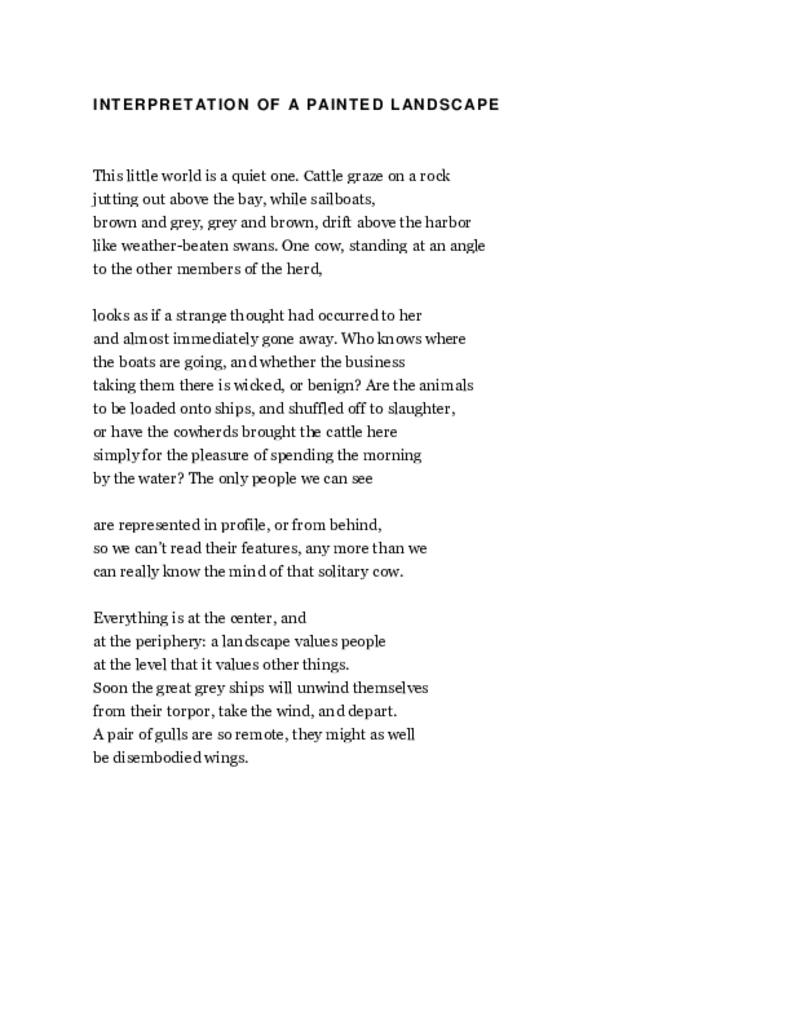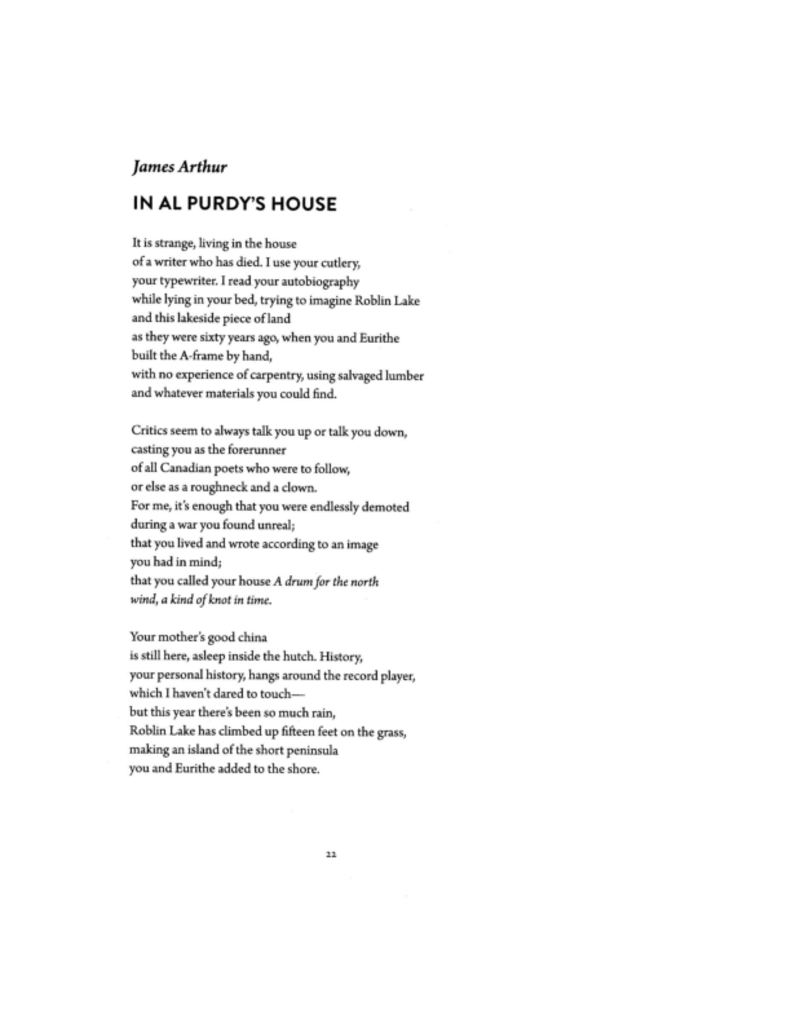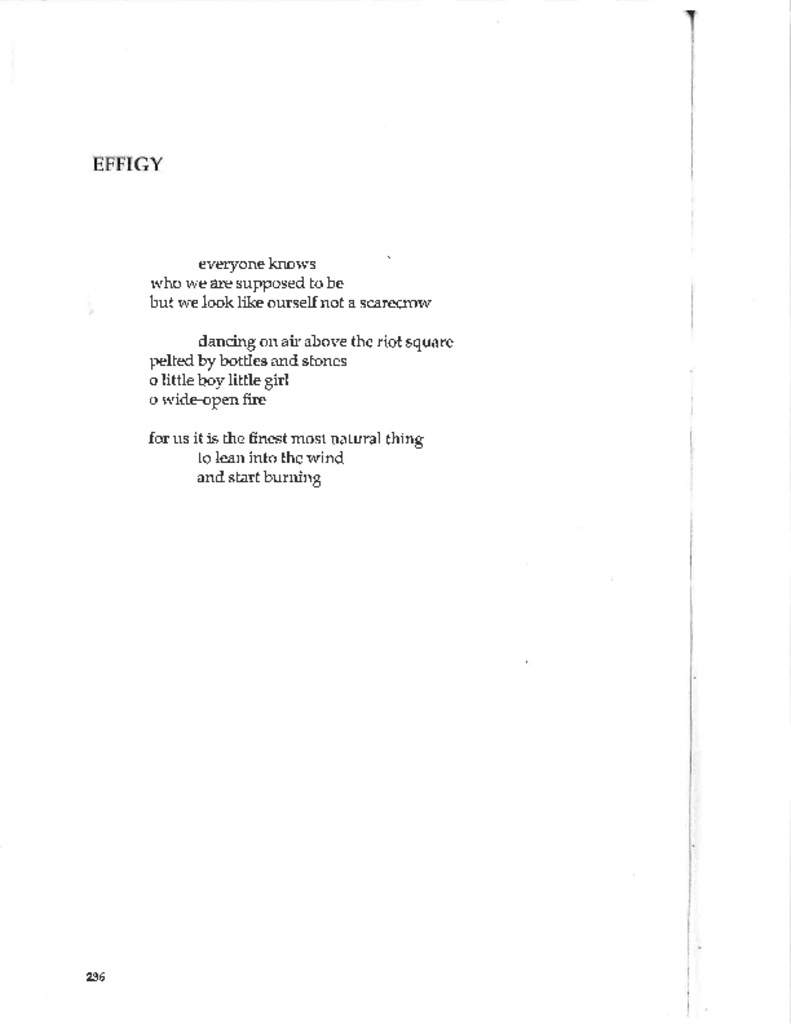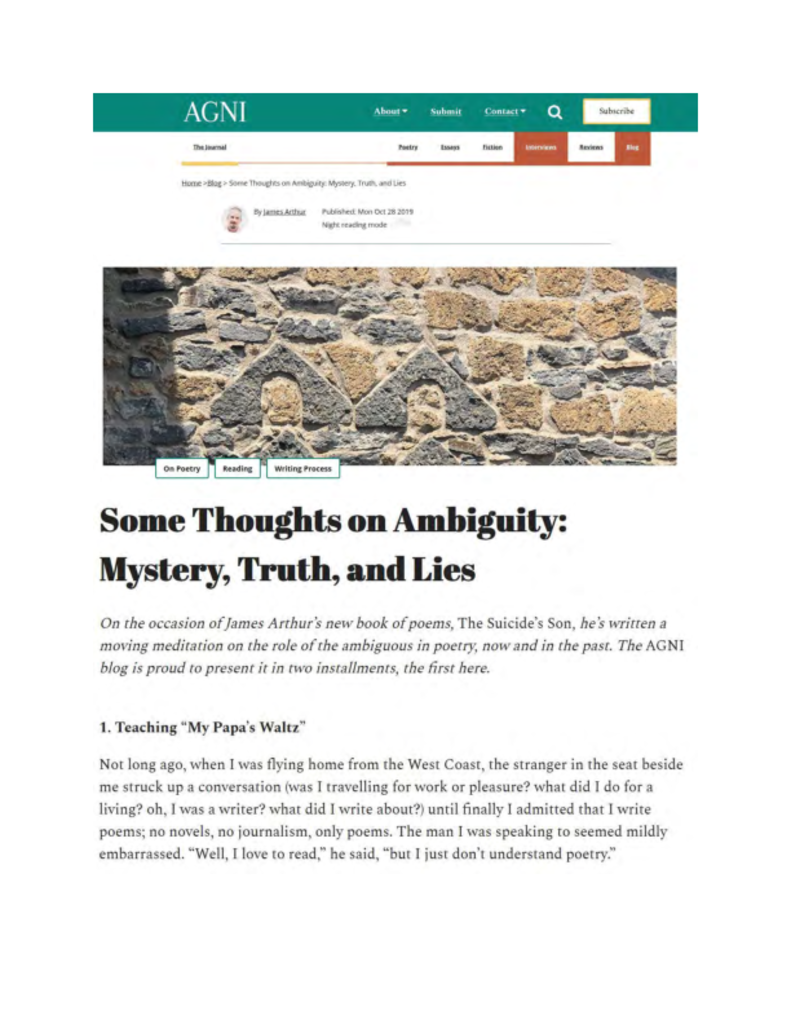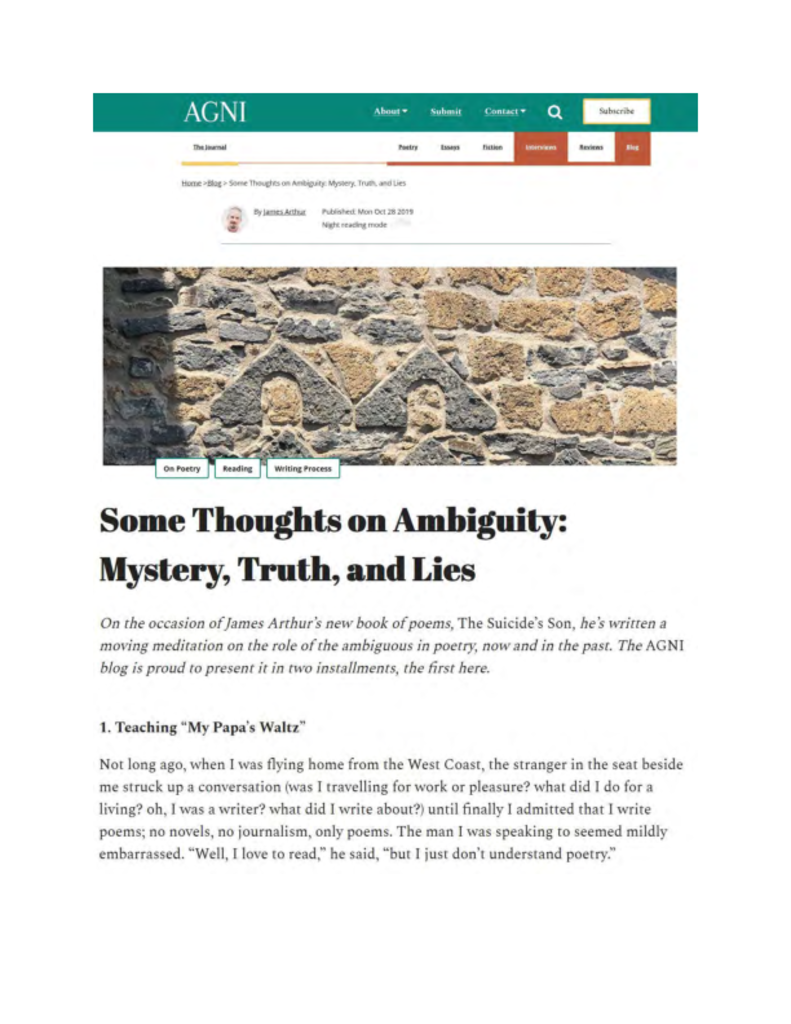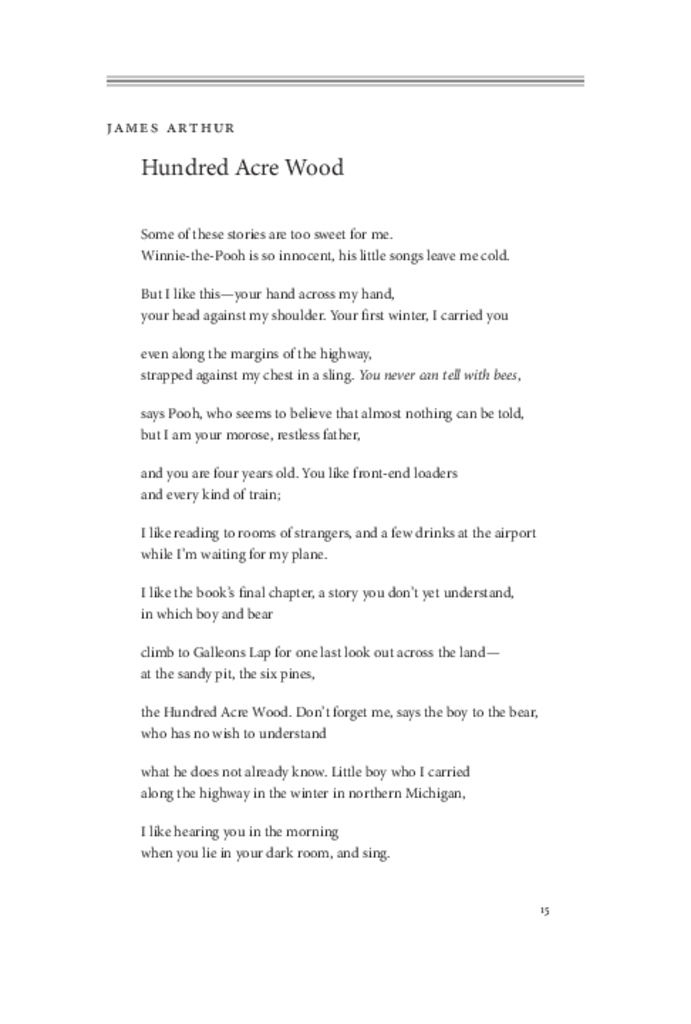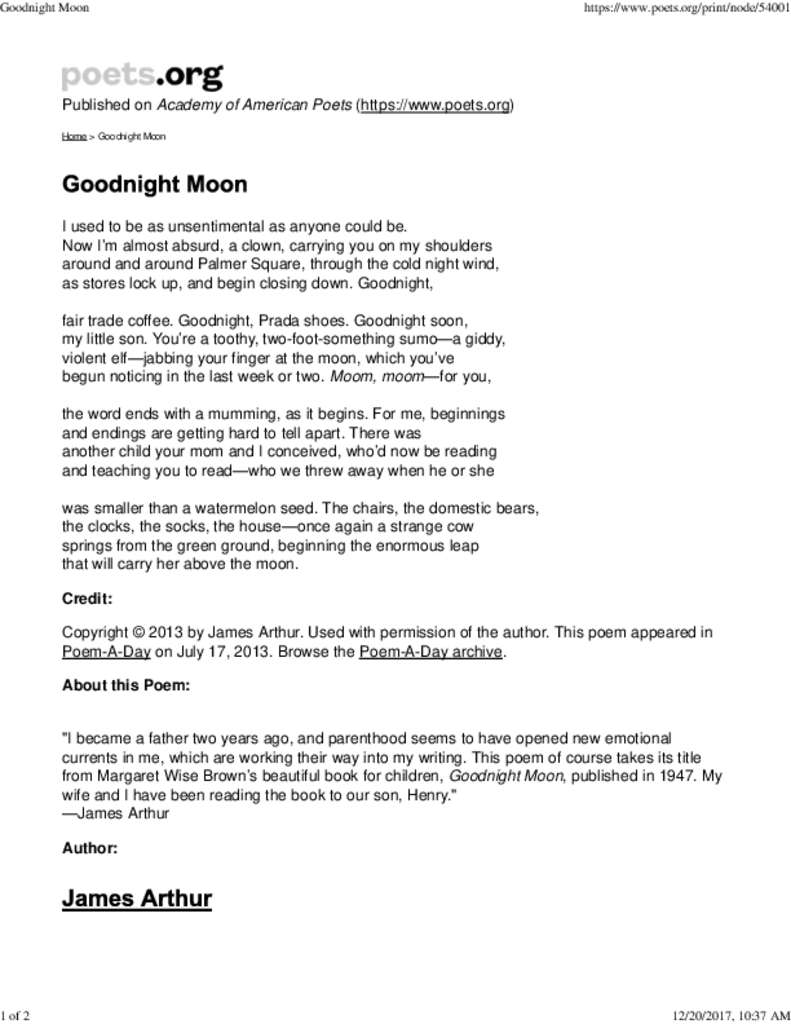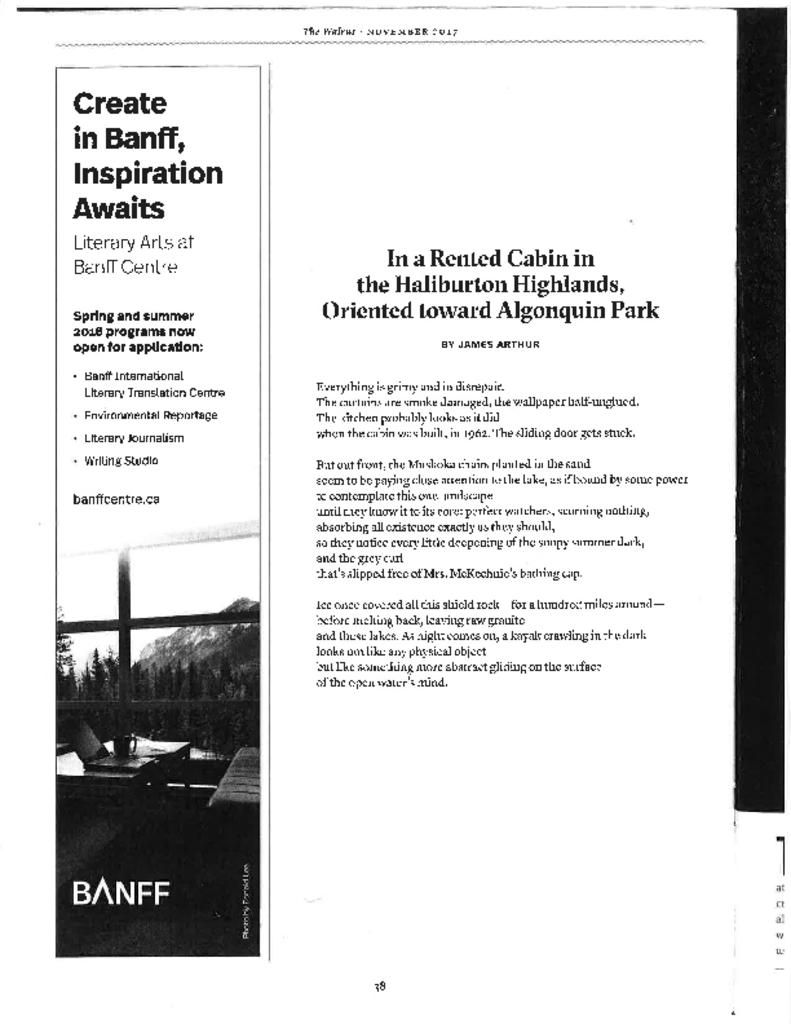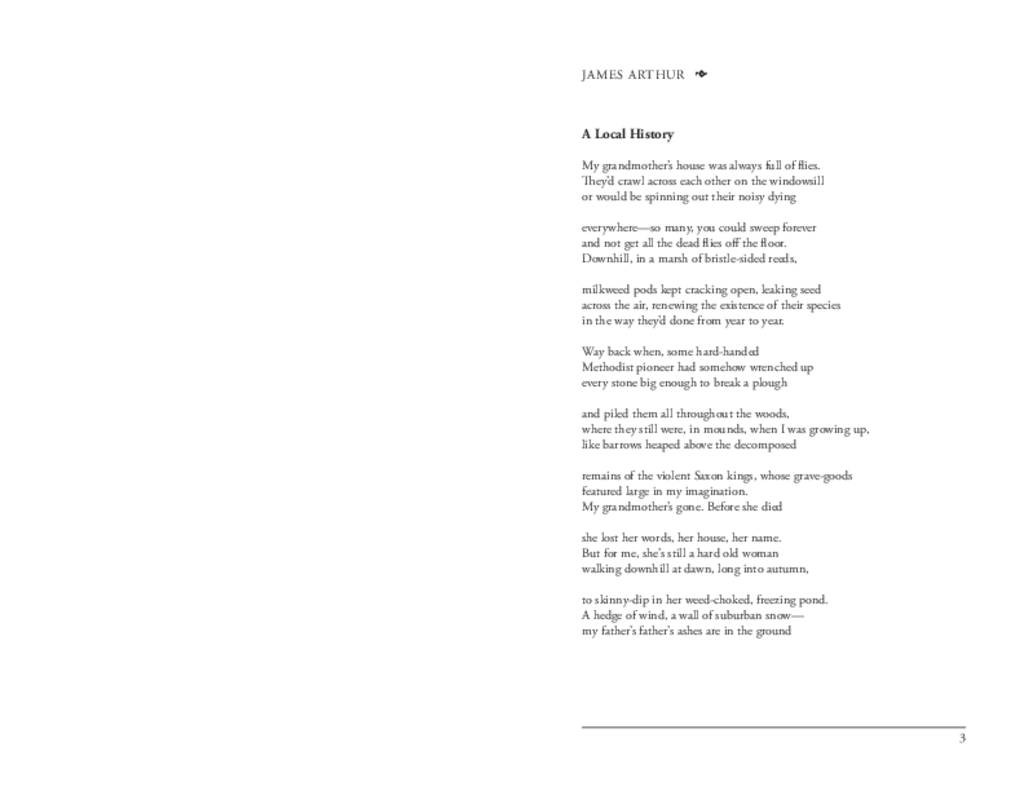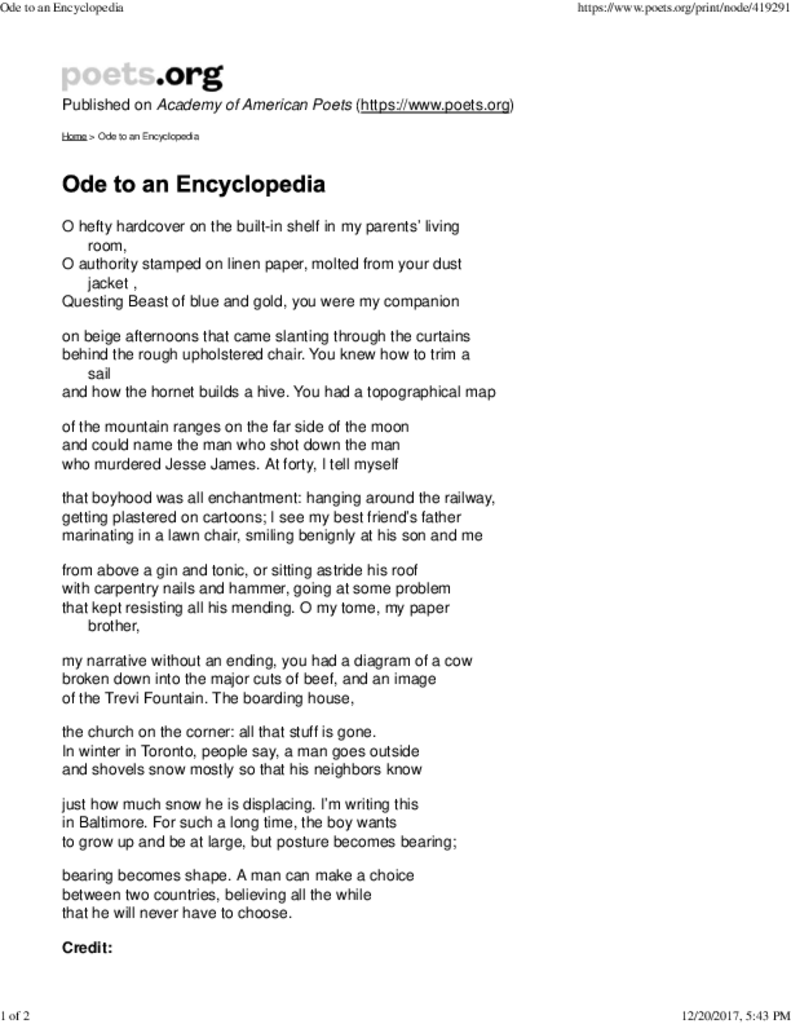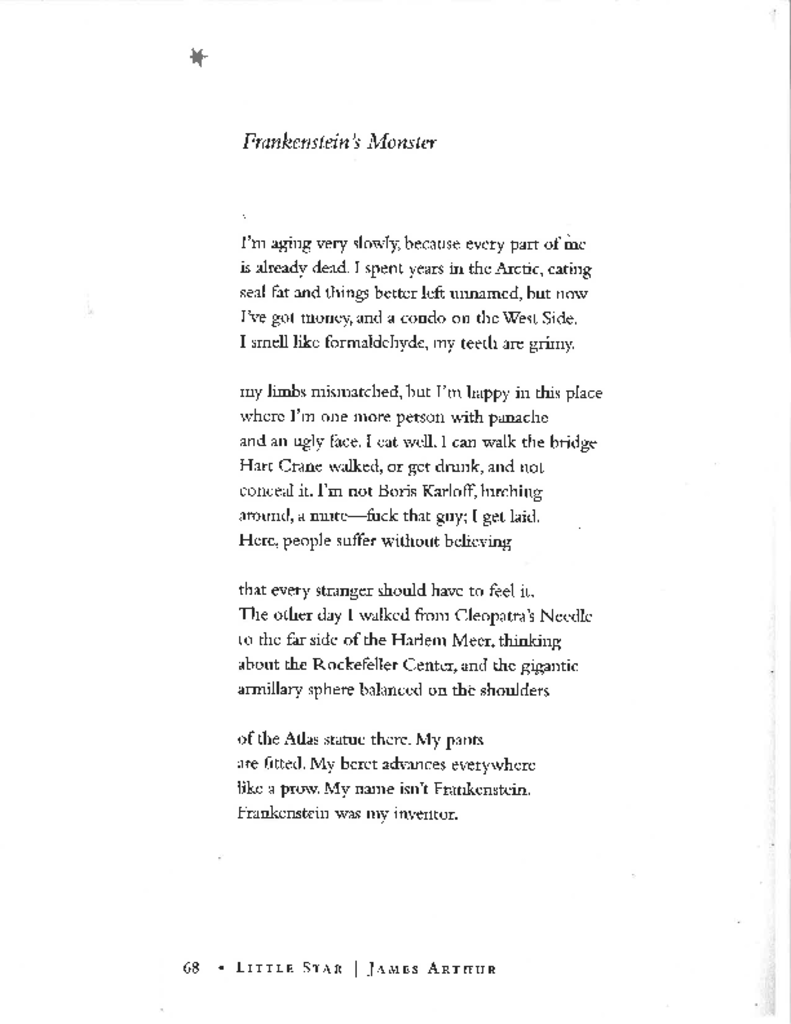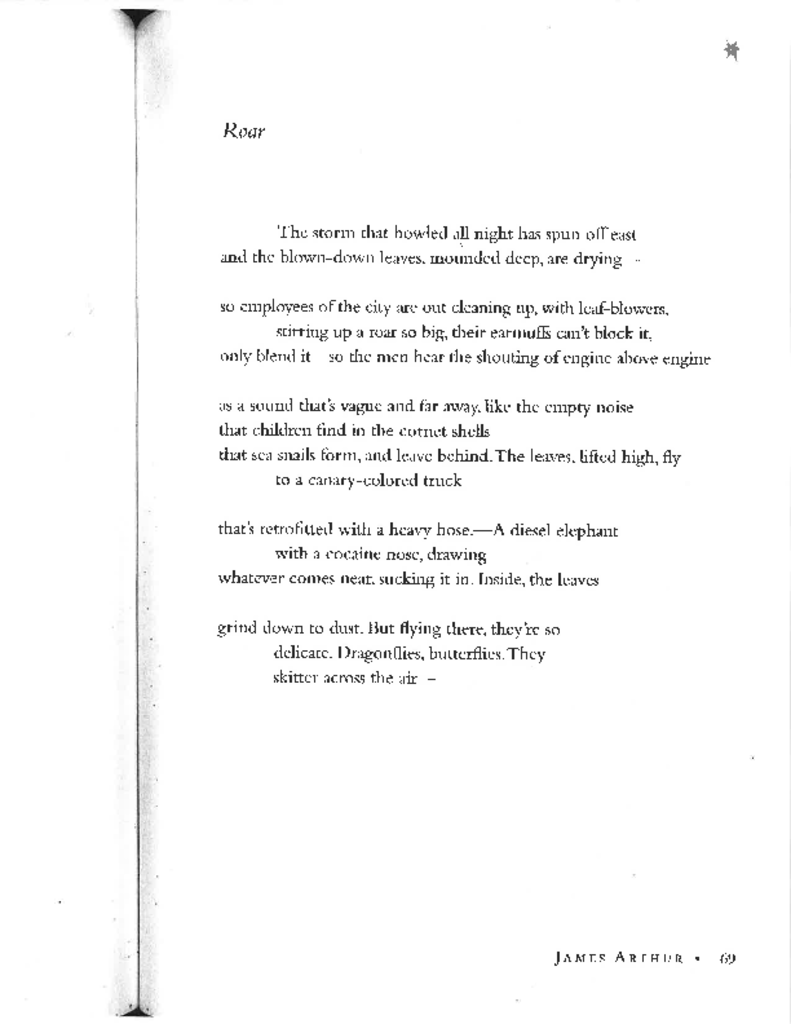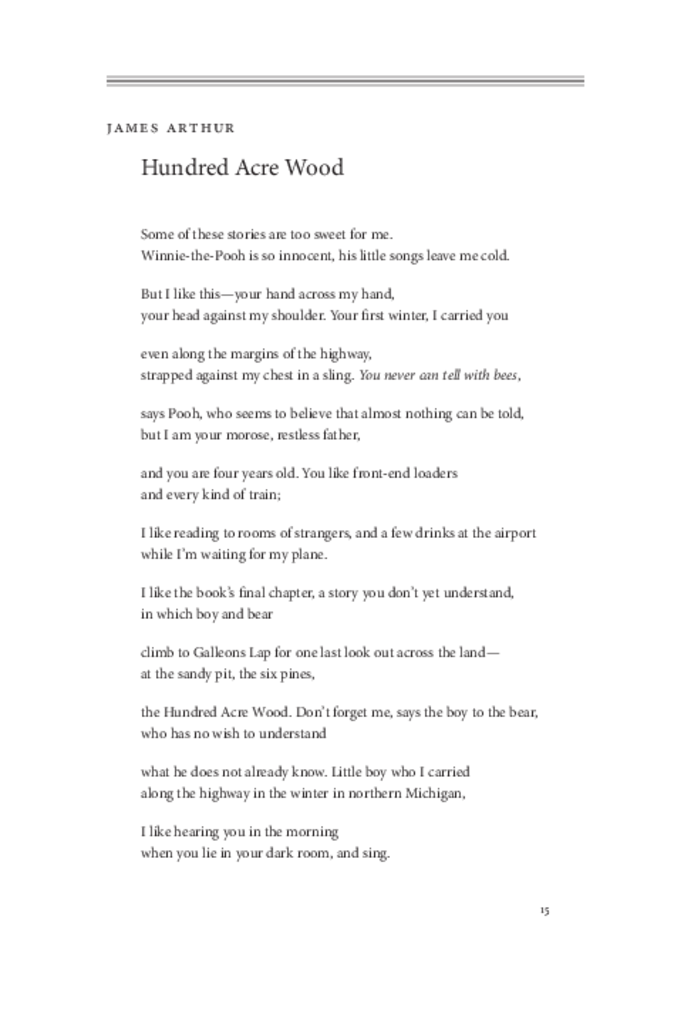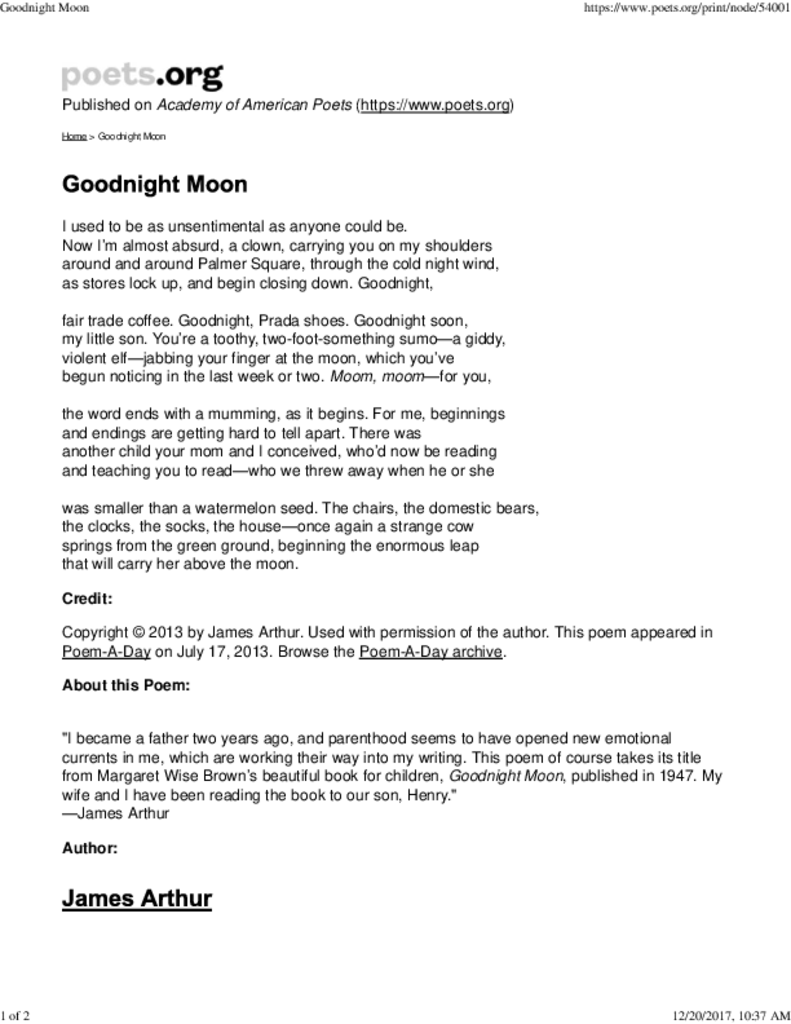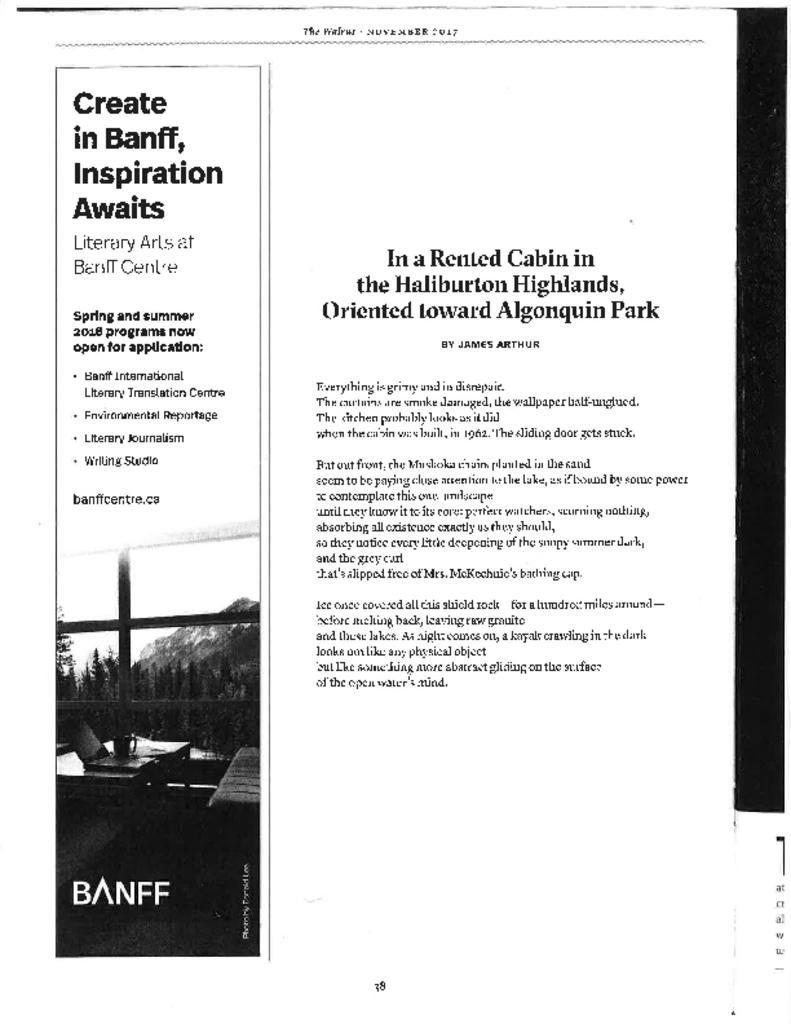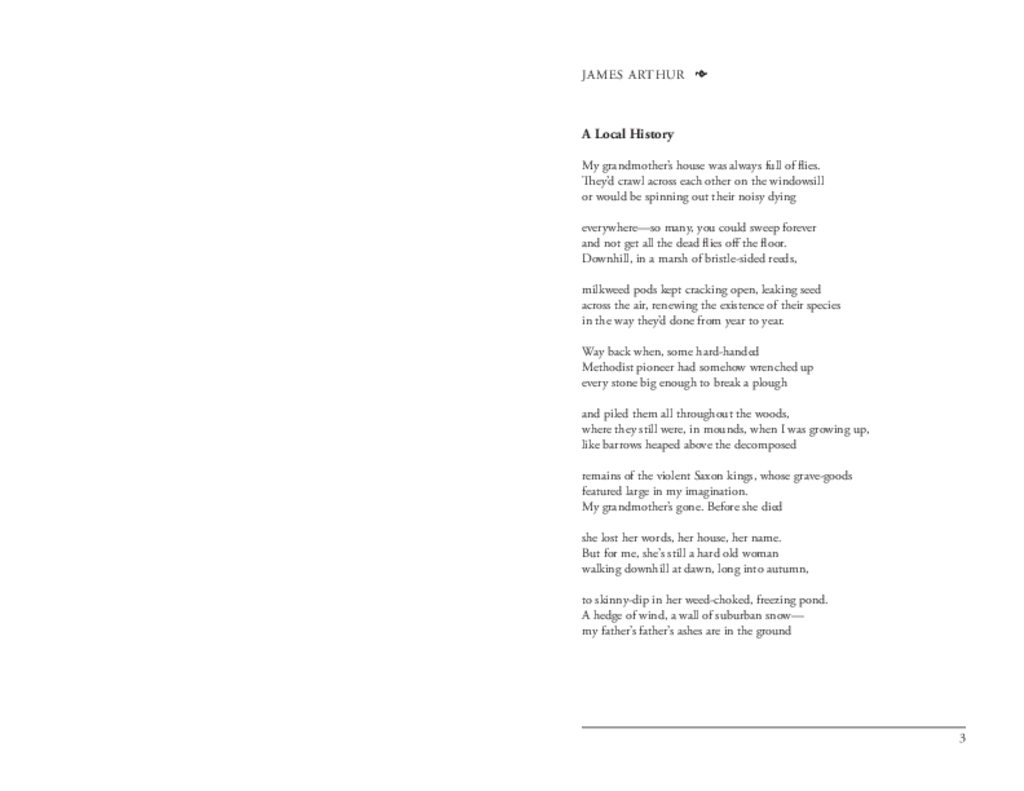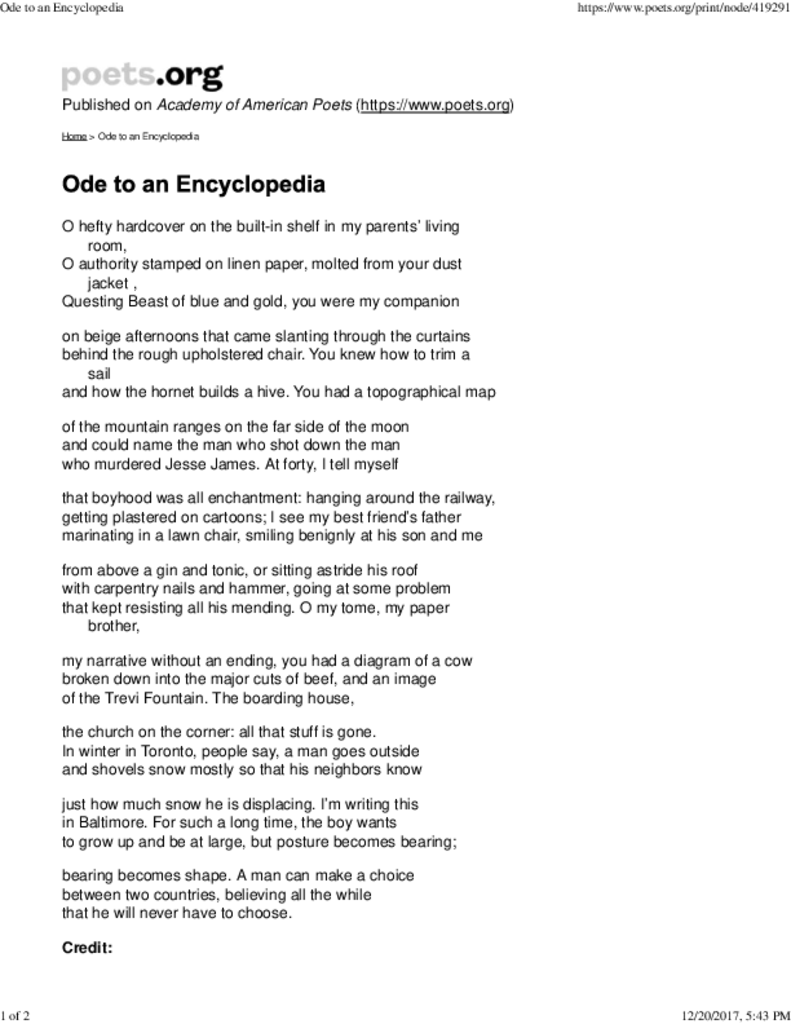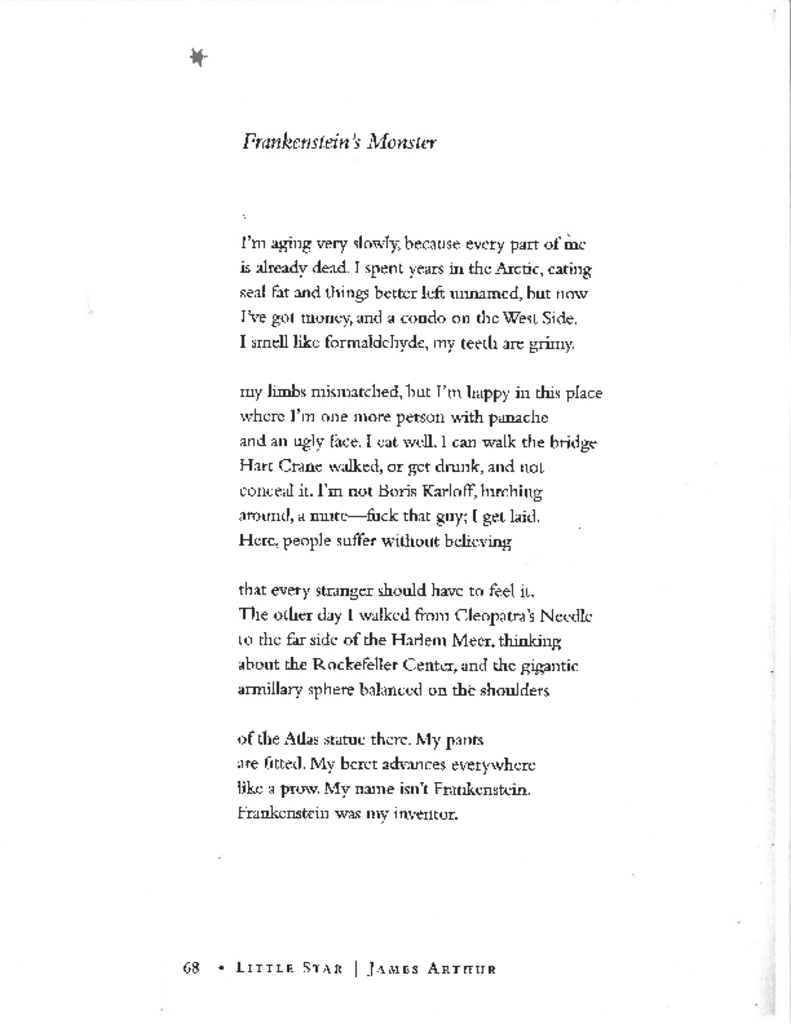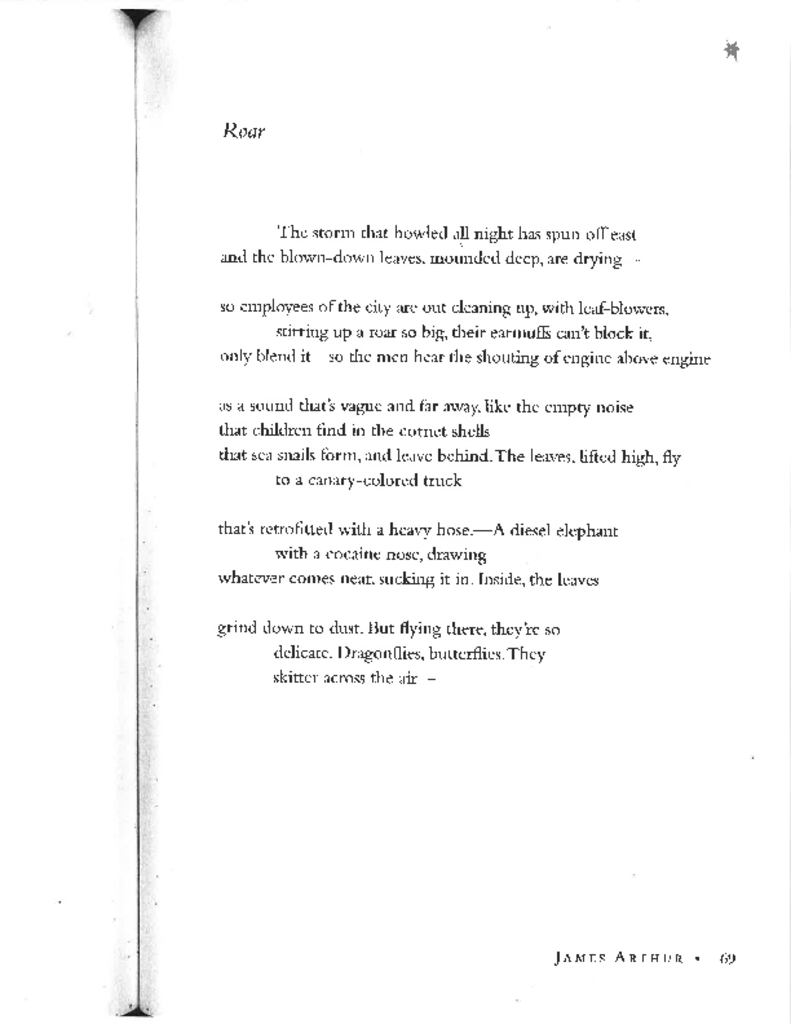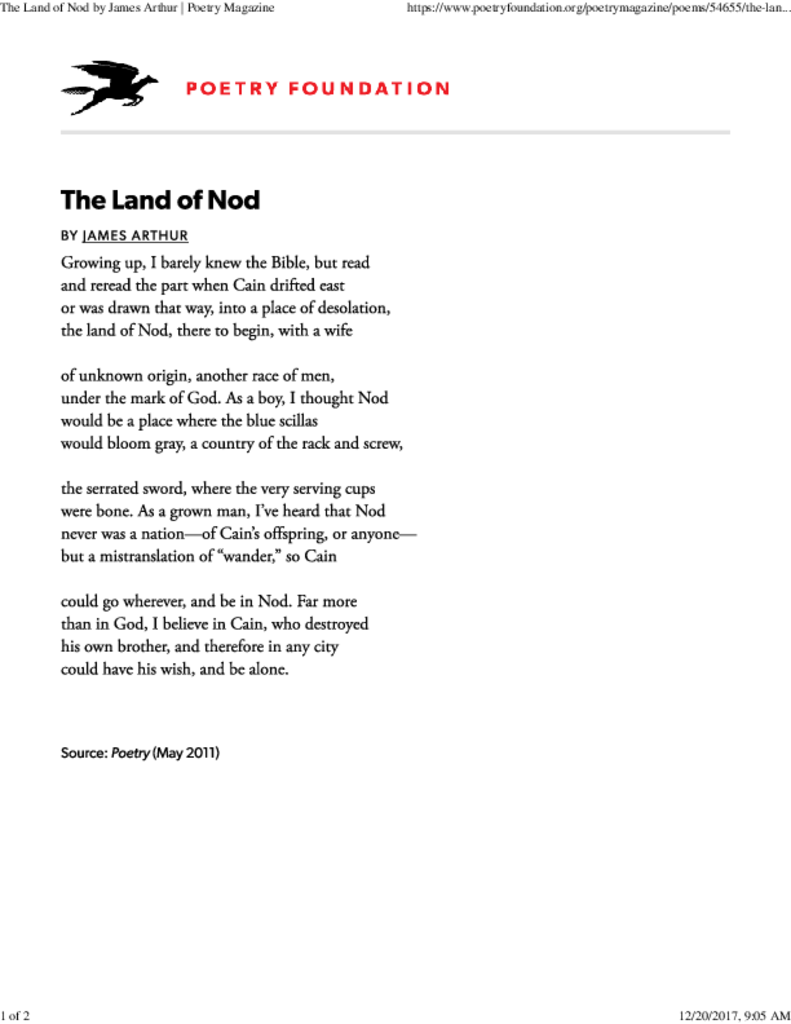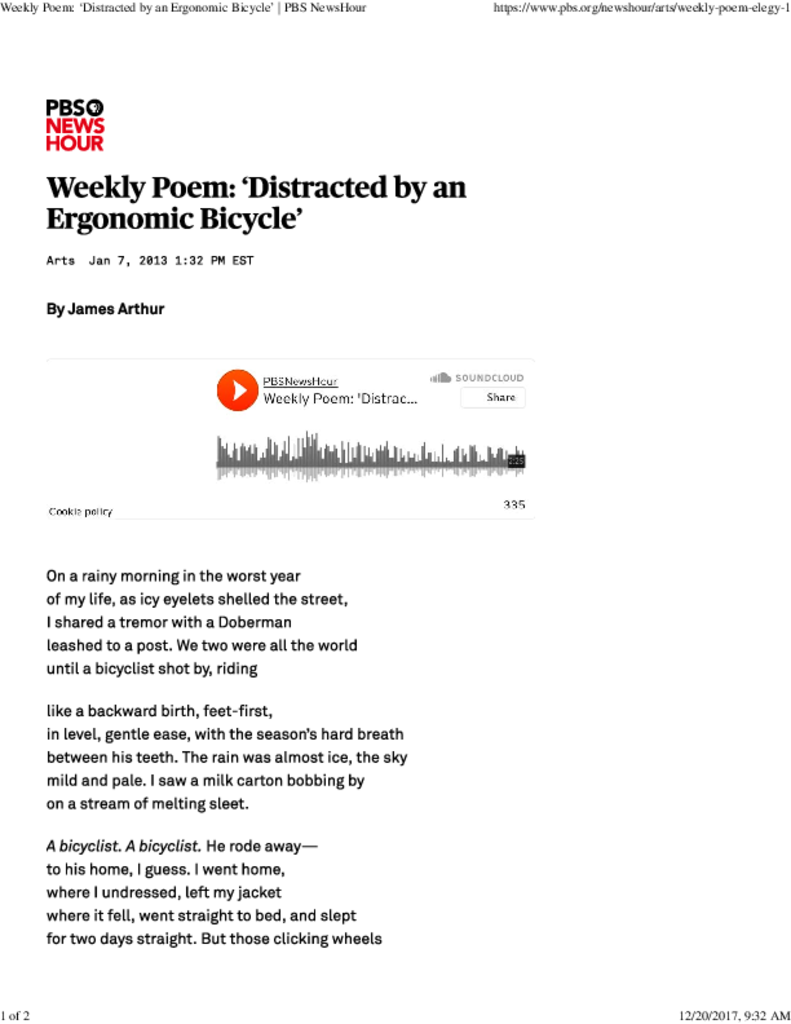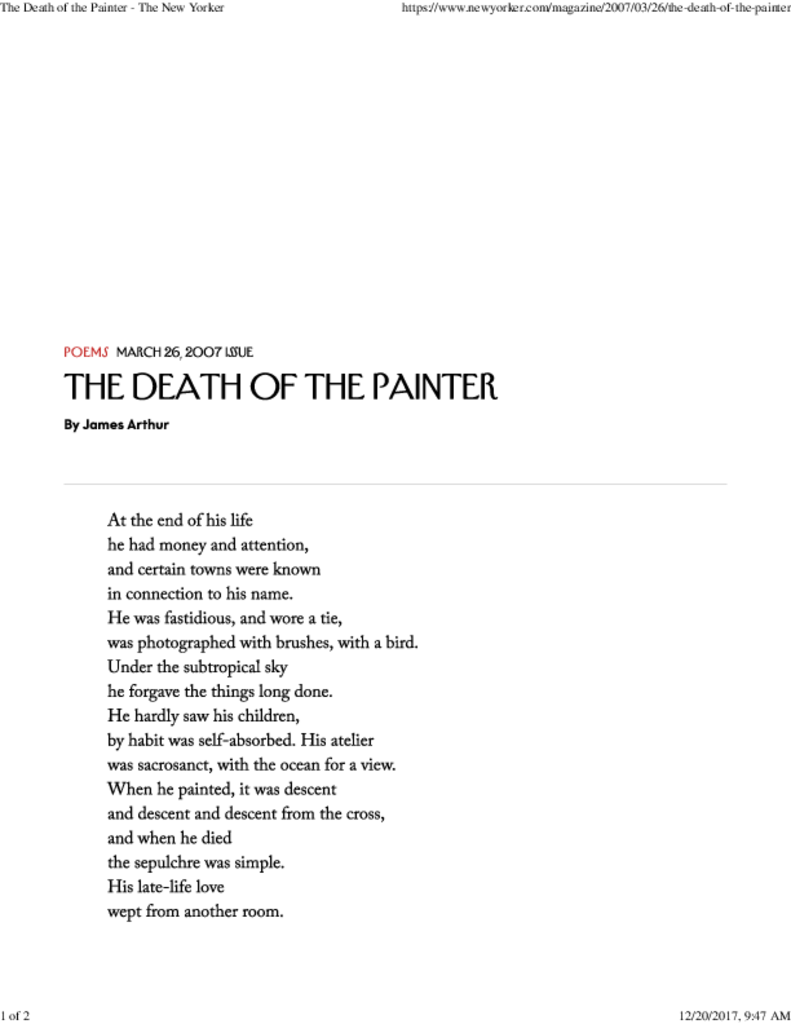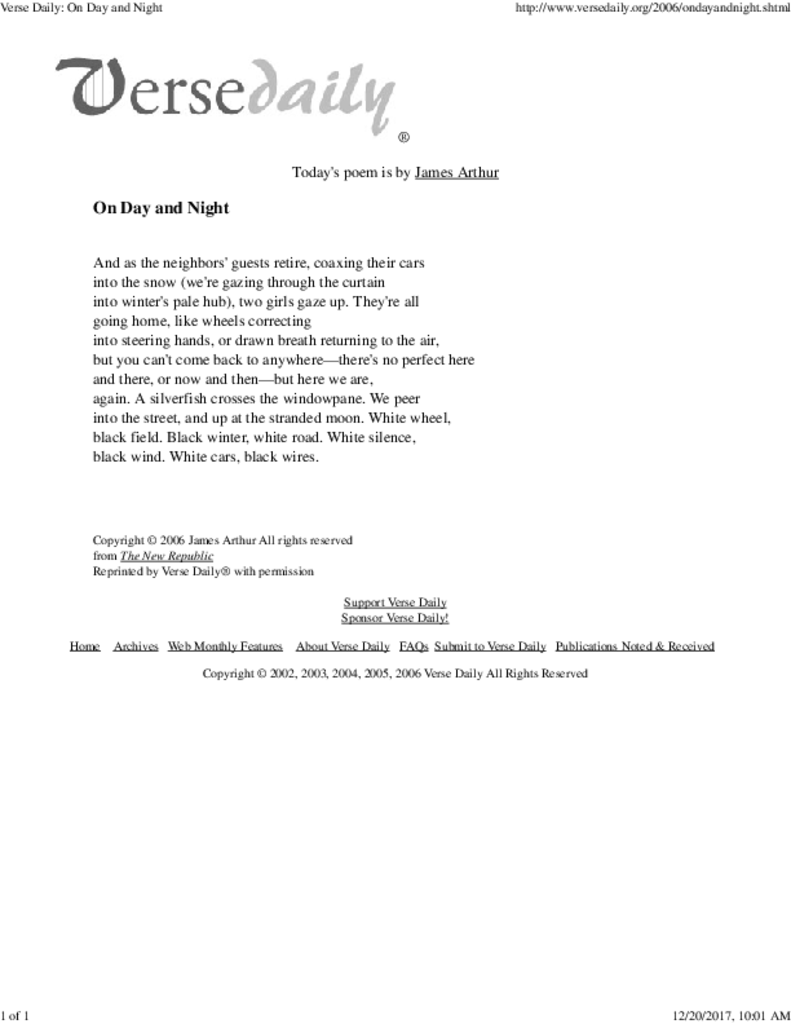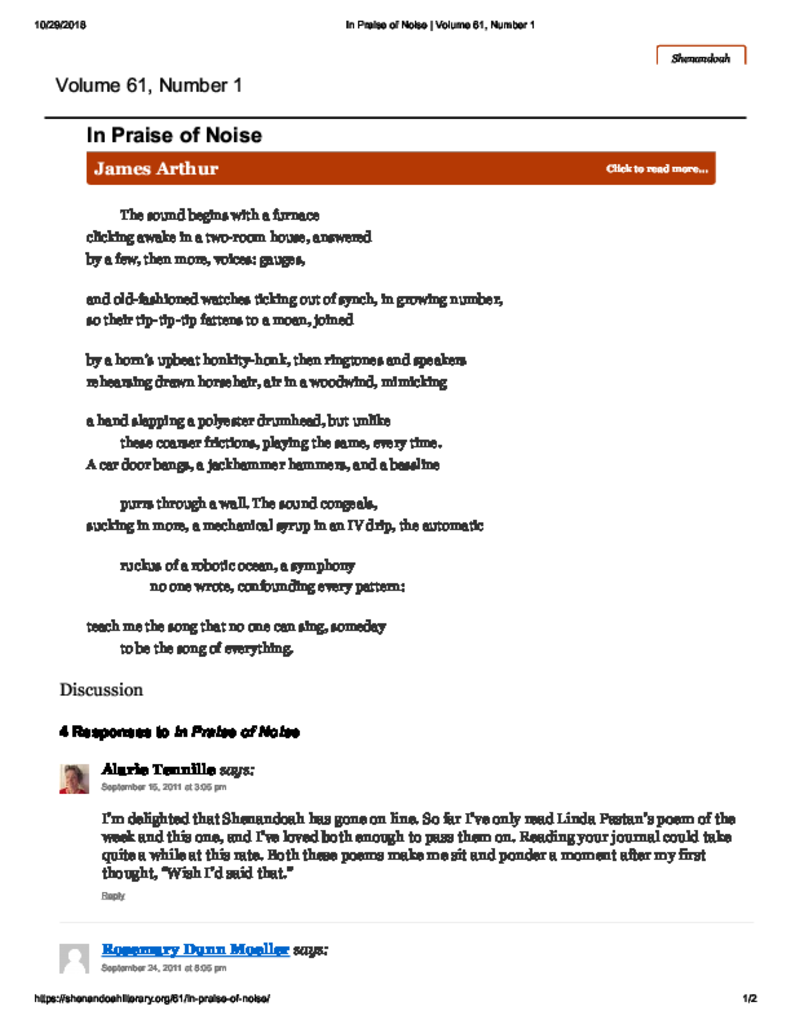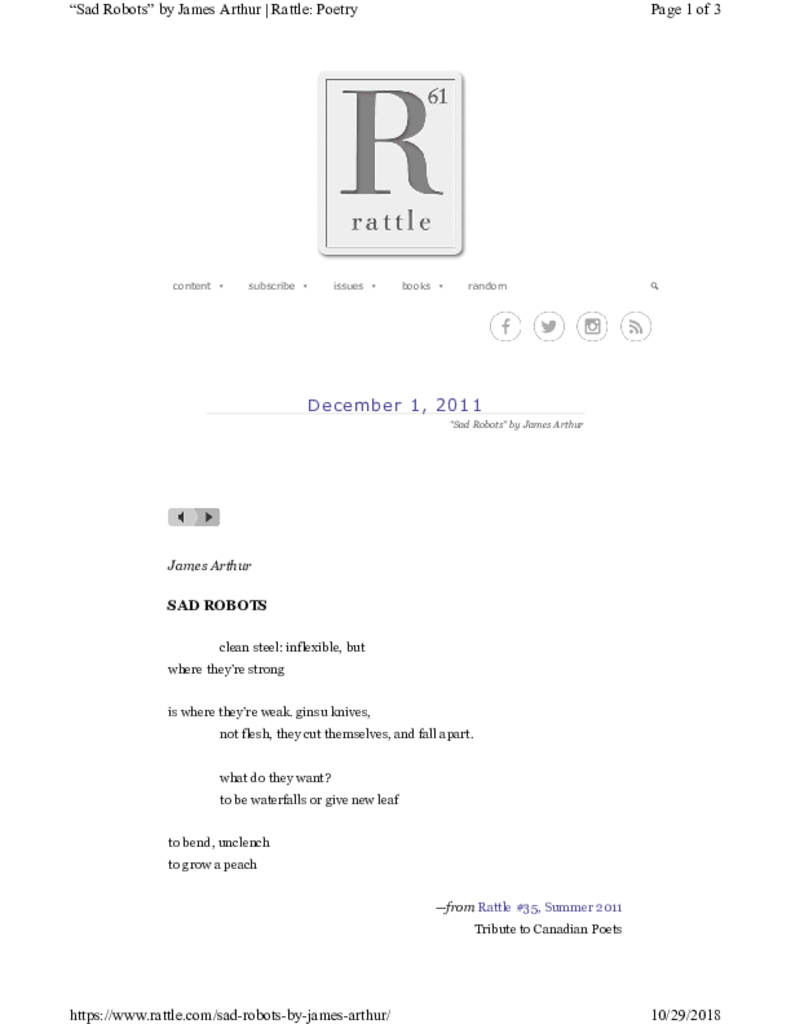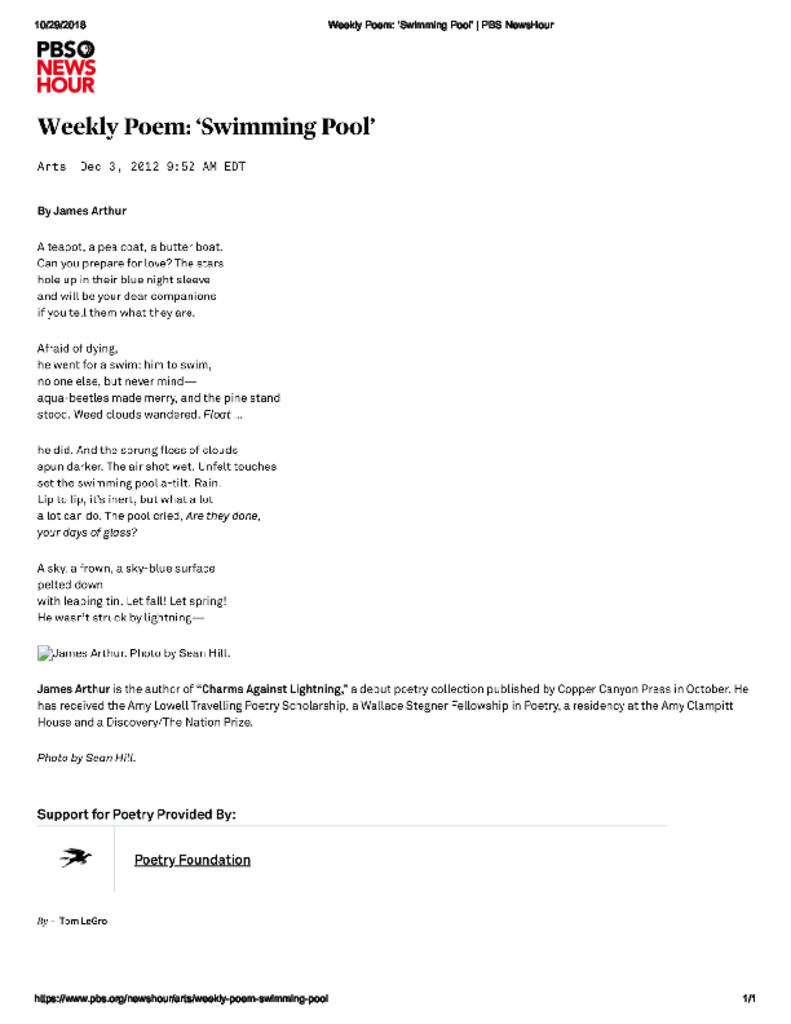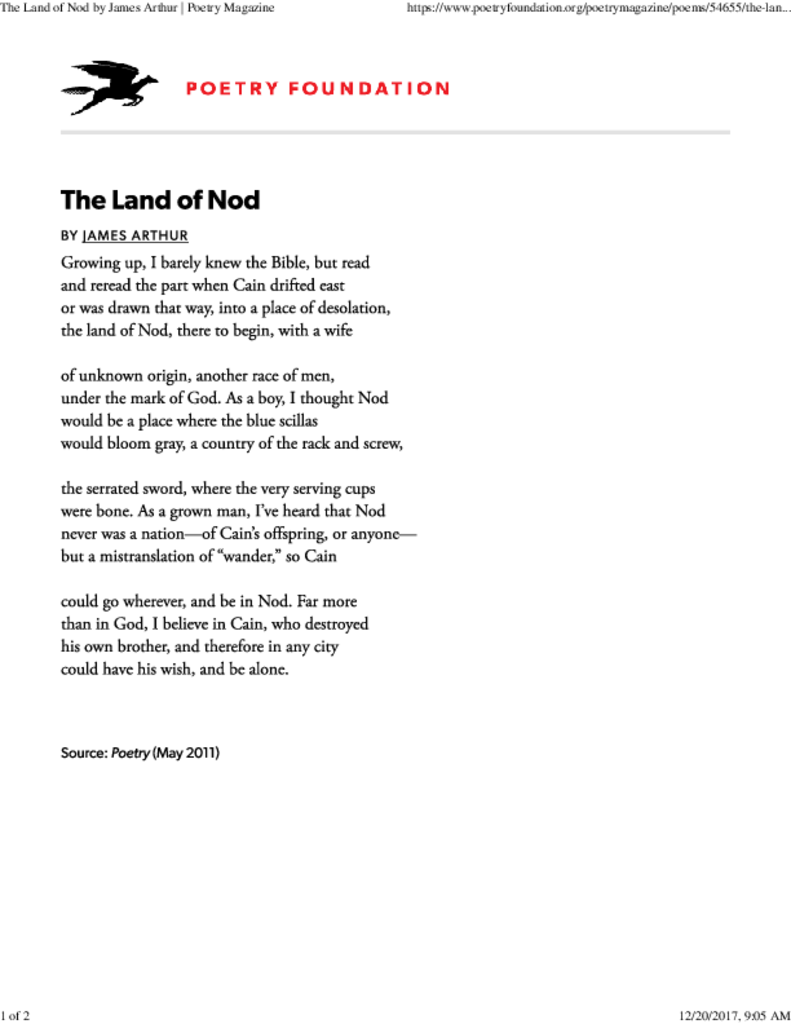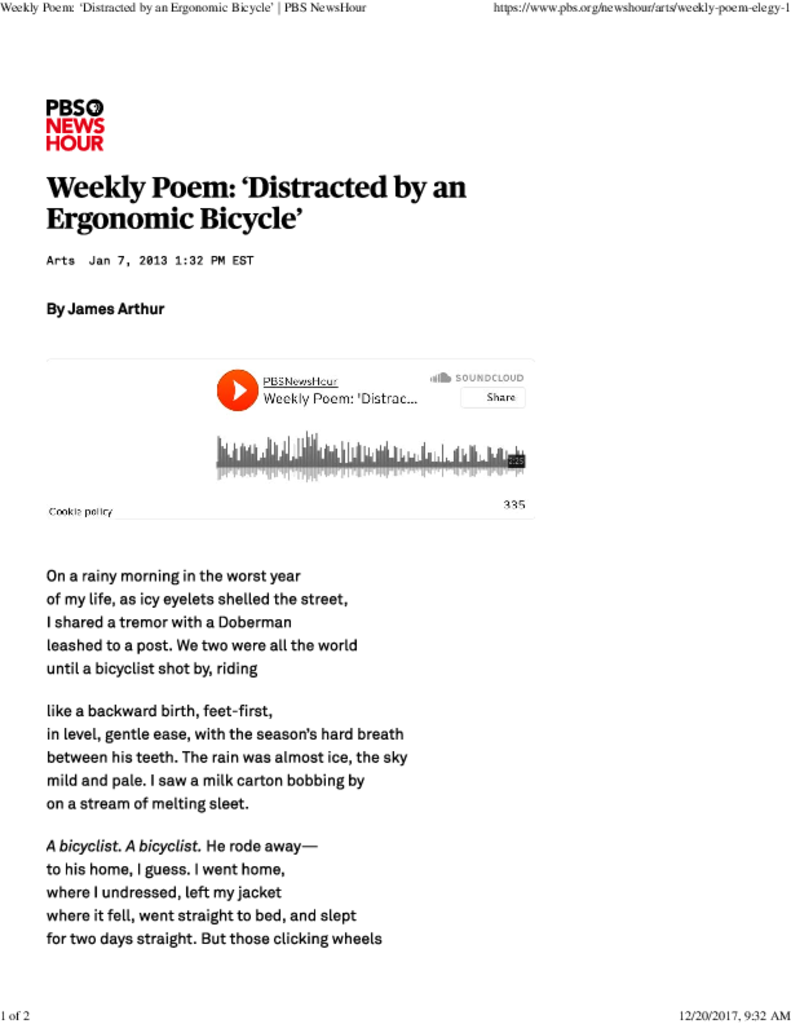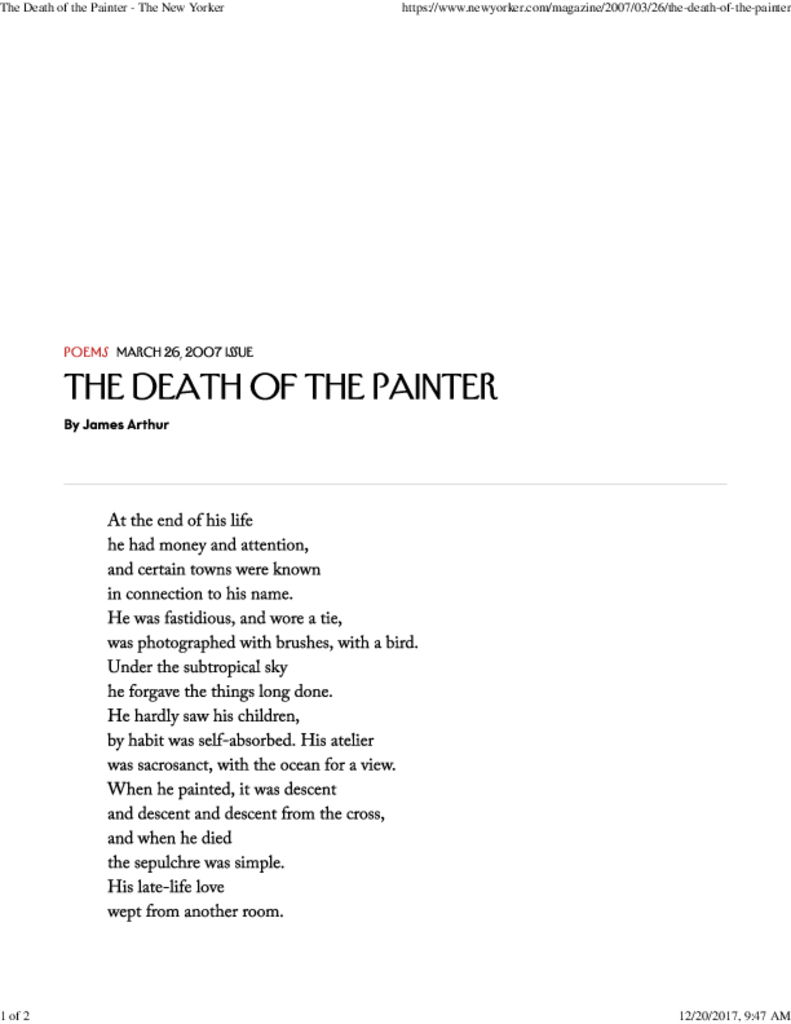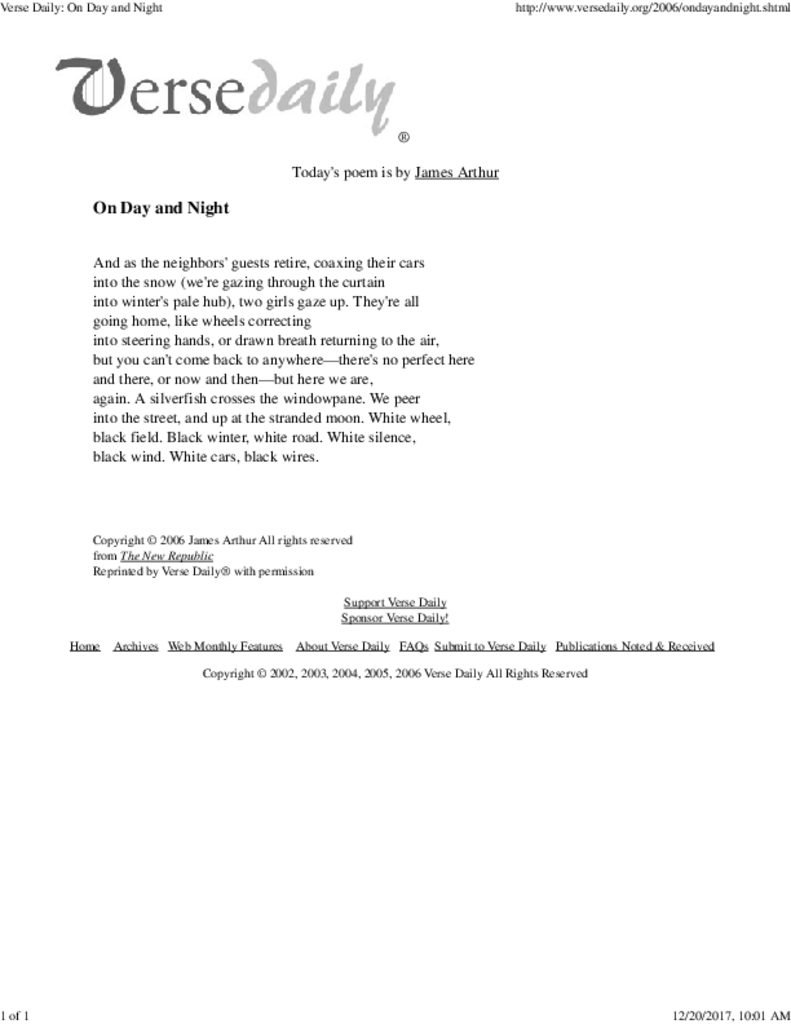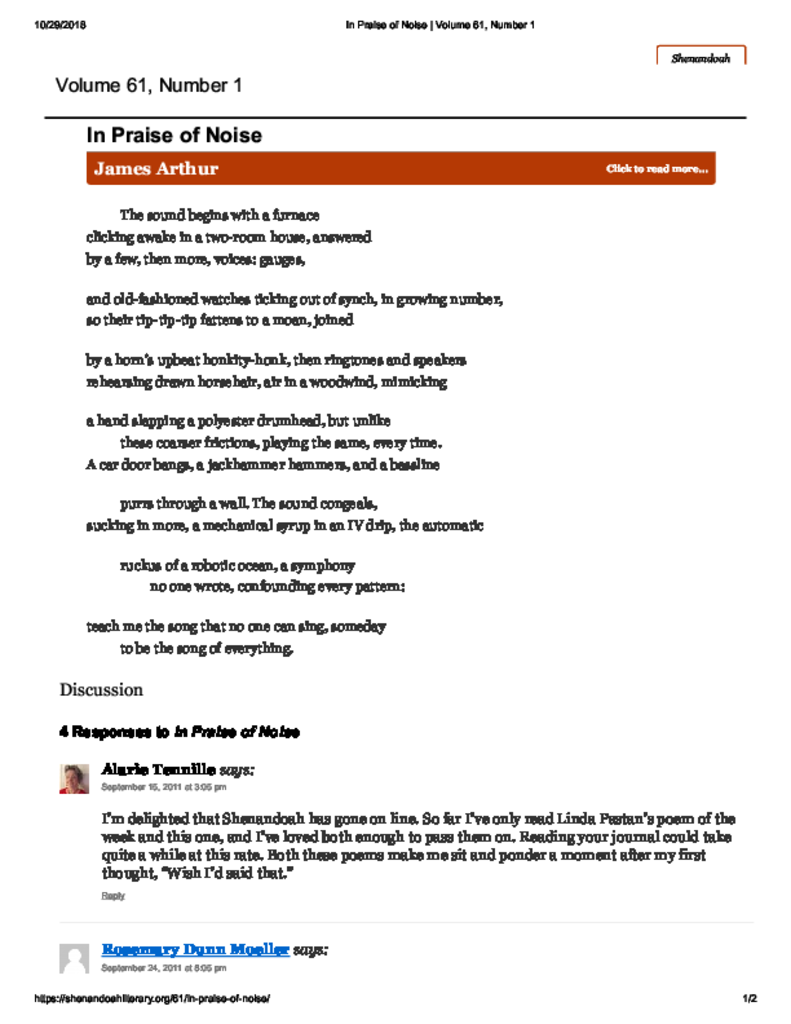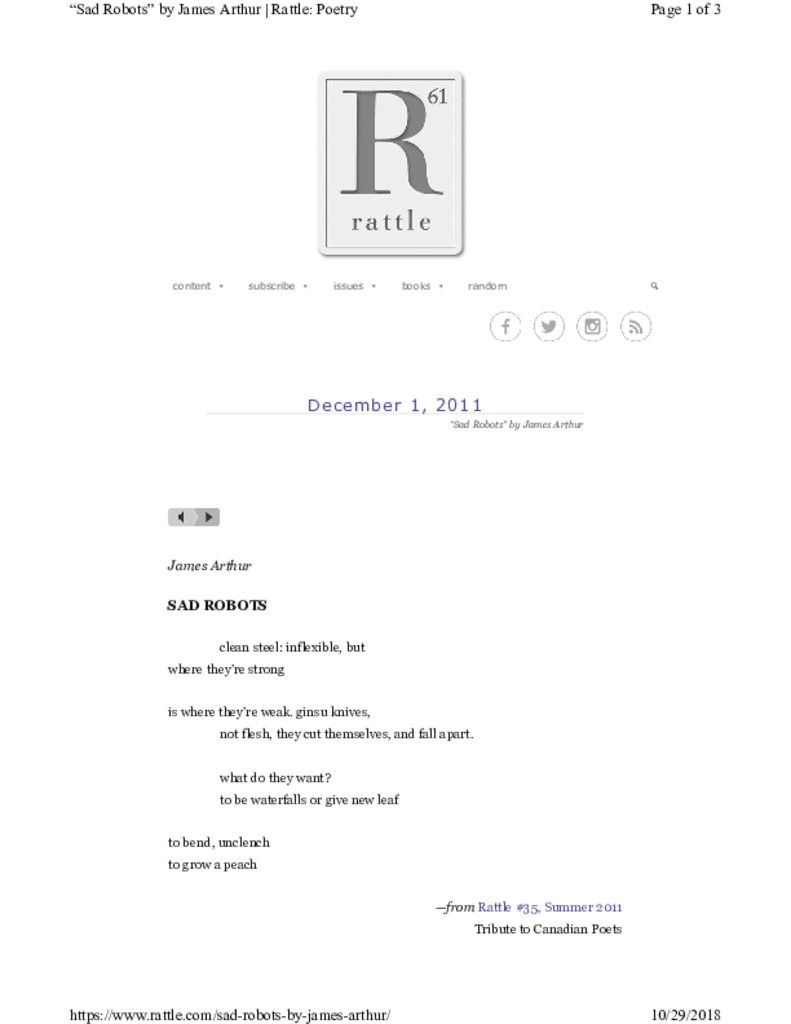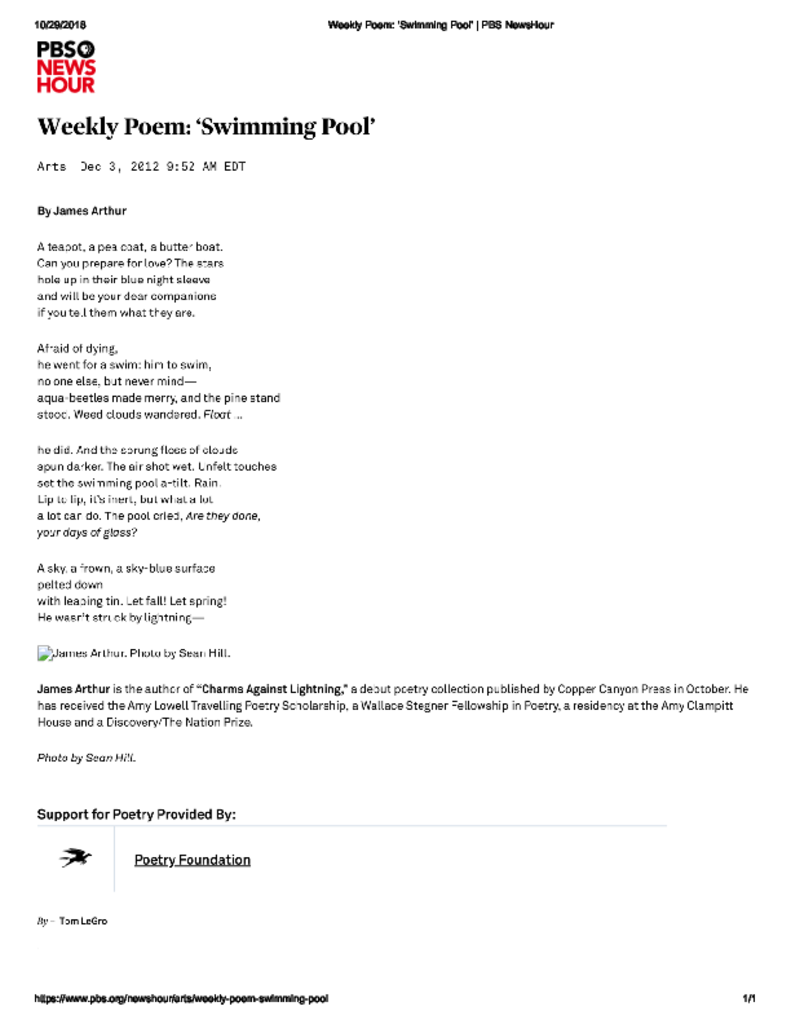Work samples
About James

James Arthur was born in Connecticut and grew up in Toronto. He is the author of The Suicide's Son (Véhicule Press 2019), Hundred Acre Wood (Anstruther Press 2018), and Charms Against Lightning (Copper Canyon Press 2012). His poems have also appeared in The New Yorker, Poetry, The New York Review of Books, The London Review of Books, The New Republic, Ploughshares, and The American Poetry Review. He has… more
The Suicide's Son
My second full-length poetry collection, The Suicide's Son, was published in 2019 by the Montreal-based publisher Véhicule Press.
Individual poems from The Suicide’s Son were first published in 32 Poems, Alaska Quarterly Review, American Poetry Review, Hazlitt, The Hopkins Review, Little Star, Literary Matters, The London Review of Books, Narrative, The New York Review of Books, Poetry Northwest, The Southern Review, The Walrus, and The Yale Review. Poems also appeared in the Academy of American Poets' Poem-A-Day project, in Resistance, Rebellion, Life: 50 Poems Now (Knopf 2017), Still Life with Poem: 100 Natures Mortes in Verse (Literary House Press 2016), The Next Wave: An Anthology of 21st Century Canadian Poetry (Palimpsest Press 2018), Resisting Canada: An Anthology of Poetry (Véhicule Press 2019), Best Canadian Poetry in English 2016 (Tightrope Books 2016), Beyond Forgetting: Celebrating 100 Years of Al Purdy (Harbour Publishing 2018), and Here: Poems for the Planet (Copper Canyon Press 2019).
Though I work mainly in free verse, I often think of poetry in formal (i.e. structural) terms, and I try to write poems whose meaning is determined at least partly by the repetition and organization of sound. Many of my poems contain rhyme and what I think of as “runs” of iambic or anapestic meter, but I’m very interested in trying to capture what I think of as a kind of asymmetrical beauty, so I often establish metrical expectations only for the sake of breaking them. I aspire to write poems that are rhythmically well-constructed, down to the level of the syllable, but also indivisible in their parts, so that the reader cannot easily separate the poem into discrete metrical feet or metrical phrases; disorder, or a pattern that is varied to the point of seeming disordered, is beautiful, from my perspective, and I want to convey that beauty rhythmically.
I think of myself as an oral poet and write more for an audience than for a readership, though publishing is of course an important part of my professional life. When performing, I recite my poems from memory.
Praise for The Suicide's Son:
"In The Suicide’s Son, we encounter [Arthur's] mastery of individual lyrics, but the collection is more than the best of his journal publications. It gathers in the mind as a single text as Arthur both poses and answers questions about the ideas, objects, and traits we broadly inherit—as family members, as members of a culture, as animals—and how we respond to the often troubling content of that inheritance."
-- Literary Matters
"Nothing is inscrutable or imprecise. It all adds up to maximum impact conveyed directly from the words to the reader’s brain, and via brain to heart."
-- 32 Poems
"Rootlessness ebbs and flows, all while the cogs and underpinnings churn and grind each poem into a solid object that transcends the quotidian. These words are ordered to last."
-- RHINO Reviews
"The poems in James Arthur’s new collection, The Suicide’s Son, convey a mastery of resonance and form while dealing with topics that are relevant and real."
-- Montreal Review of Books
-
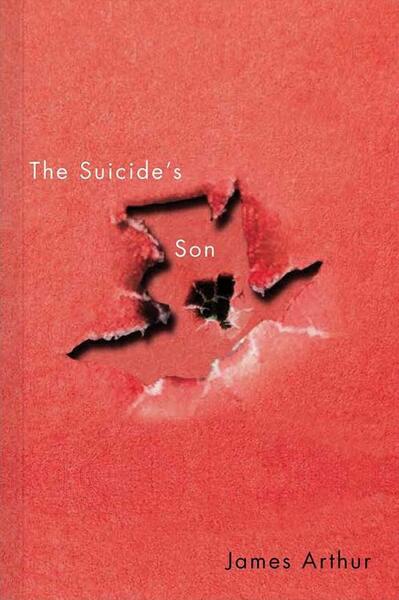 The Suicide's SonThe cover of The Suicide's Son was designed by David Drummond.
The Suicide's SonThe cover of The Suicide's Son was designed by David Drummond. -
In Al Purdy's House"In Al Purdy's House" was inspired by a two-month residency in the iconic A-frame house built by Canadian poet Al Purdy and his wife Eurithe. The poem first appeared in the May/June 2018 of The American Poetry Review, and was recently anthologized in Beyond Forgetting: Celebrating 100 Years of Al Purdy (Harbour Publishing 2018).
-
Drone (audio)An audio recording of "Drone" from The Suicide's Son.
Some Thoughts on Ambiguity: Mystery, Truth, and Lies
"Some Thoughts on Ambiguity," the first of my essays to be published, appeared on the AGNI blog in two installments.
Hundred Acre Wood
Individual poems in Hundred Acre Wood first appeared in The Academy of American Poets’ Poem-A-Day project, The American Poetry Review, The Best of Canadian Poetry 2016, Hazlitt, Little Star, The New York Review of Books, The Southern Review, and The Walrus.
-
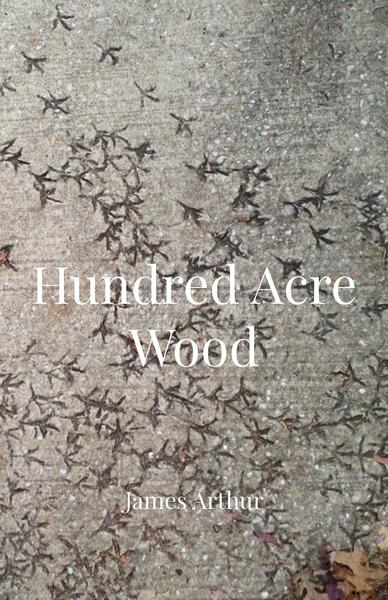 Hundred Acre WoodThe cover of Hundred Acre Wood was designed by Erica Smith, incorporating a photograph by Tomás Q. Morín. The flagstone in the photograph is located in Baltimore, on Remington Avenue.
Hundred Acre WoodThe cover of Hundred Acre Wood was designed by Erica Smith, incorporating a photograph by Tomás Q. Morín. The flagstone in the photograph is located in Baltimore, on Remington Avenue. -
Goodnight MoonOne of the poems from Hundred Acre Wood, "Goodnight Moon," was featured in the Academy of American Poets' Poem-A-Day project on July 17, 2013. Together with "Fatherhood" from Charms Against Lightning, it was the subject of an article by Delaware Poet Laureate JoAnn Balingit, "Poems about fathers continue to enchant state poet laureate," published in the News Journal on June 13, 2014.
-
A Local History"A Local History" was first published in Hazlitt on January 12, 2015. It was later anthologized in The Best Canadian Poetry in English 2016 (Tightrope Books 2016) and The Next Wave: An Anthology of 21st Century Canadian Poetry (Anstruther Press 2018). It is forthcoming in the anthology Resisting Canada: Poems for Post-Multicultural Times (Véhicule Press 2019).
-
Ode to an Encyclopedia (audio)Audio recording of "Ode to an Encyclopedia" from Hundred Acre Wood.
-
Delmarva Live interviewOn April 4, 2017, while visiting Salisbury, MD for Salisbury Poetry Week I appeared on Delmarva Live to talk about poetry and recite my poem "Children's Book."
Charms Against Lightning
Poems from Charms Against Lightning appeared in 32 Poems, AGNI, The American Poetry Review, The Antioch Review, Best New Poets 2010, Brick, The Fiddlehead, Fox Chase Review, The Laurel Review, Literary Review of Canada, Many Mountains Moving, Narrative, New England Review, The New Republic, The New Yorker, Ploughshares, Poetry, Poetry International, Puerto Del Sol, Rattle, Shenandoah, and Third Coast.
Charms Against Lightning was shortlisted for The Believer Poetry Award and also for the League of Canadian Poets' Gerald Lampert Award.
praise for Charms Against Lightning:
"Few debuts have been more hotly anticipated than James Arthur's Charms Against Lightning. His work leading up to Charms garnered nearly every award, fellowship, and grant an emerging poet could hope to win. And for good reason: in an era where poetry often amounts to little more than broken prose, Arthur distinguishes himself as an unusual craftsman, a practitioner of true vers libre."
-- Poetry Northwest
"Arthur works his magic in lines that are tightly formed yet sculpted to flow and break for maximum effect. He summons the richness of everyday detail ... as a foundation from which the broader contexts of human experience take flight. And always there is sound, and rhythm. Keep these poems close for their poetic juju against the suddenness of life's lightning strikes, and for the forgiving melody to which Arthur choreographs the tender dance of being human."
-- The American Poetry Review
"An entrenched strangeness exists in Arthur's work, derived not from linguistic hijinks but from common observations ... his tone is casual and confident, the effect slightly off-frame or out of focus, yet constantly arresting."
-- The Believer
"Arthur's debut poetry collection, Charms Against Lightning, is so confident that is almost seems to have sprung fully formed from the pen of its creator, though the crowded acknowledgments page testifies to the fact that is has been many years in the making. It is worth the wait."
-- West Branch
"Arthur is in awe of the transient, the unstable, the airy. In concert with this, his rhythms also float. Ever aware of the fragility of life and, beyond that, the instability and changeability of the whole universe, Arthur writes poems that gather and dissipate ... Arthur is a poet of big gifts delivered lightly."
-- Rattle
-
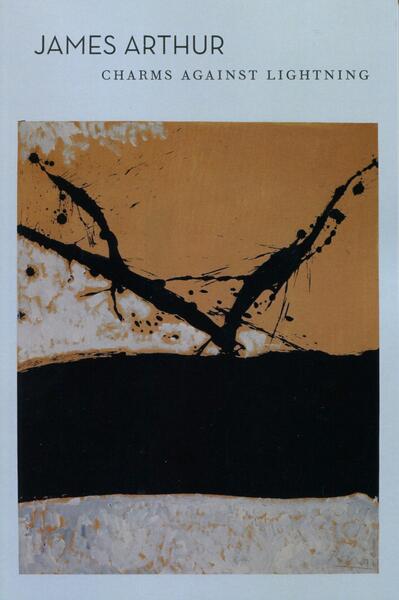 Charms Against LightningThe cover of Charms Against Lightning was designed by Phil Kovacevich and features Robert Motherwell's painting La Mer.
Charms Against LightningThe cover of Charms Against Lightning was designed by Phil Kovacevich and features Robert Motherwell's painting La Mer. -
audio recording of "Ghost Life" from "Charms Against Lightning"
-
audio recording of "Drinking Song" from "Charms Against Lightning"
